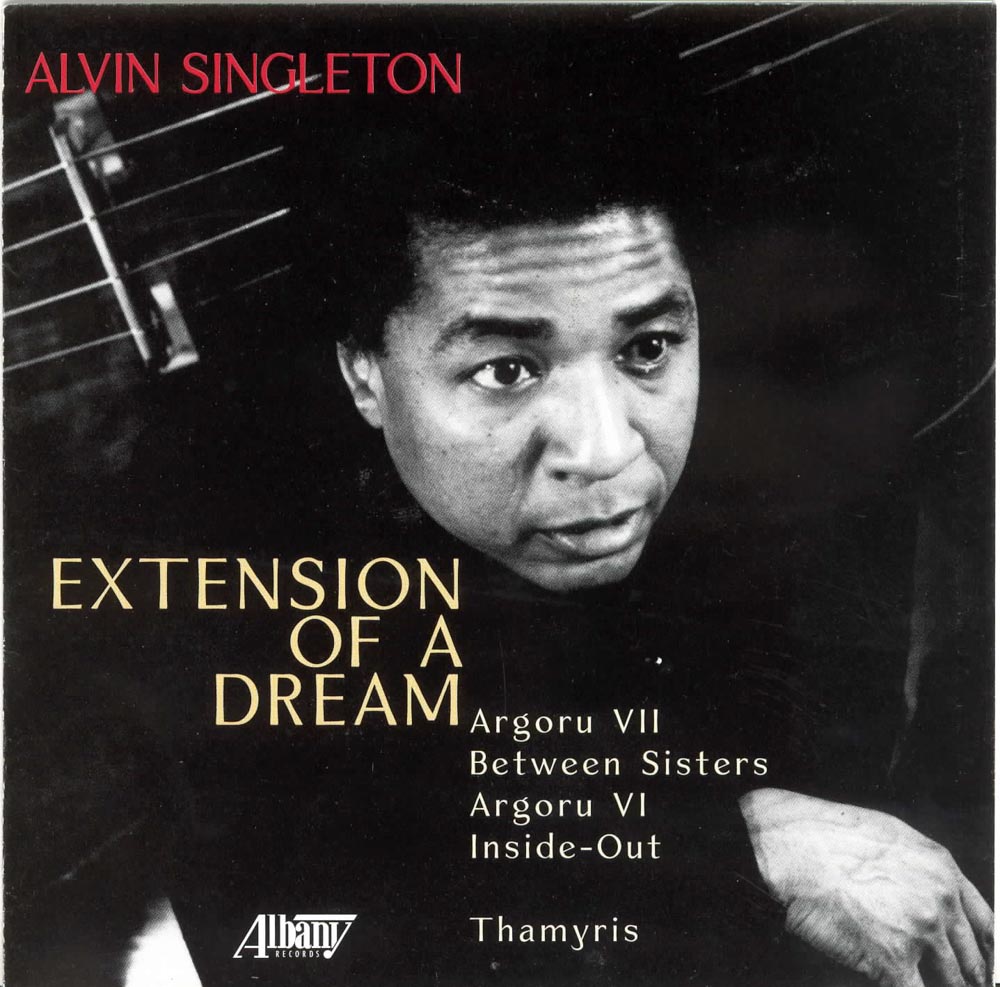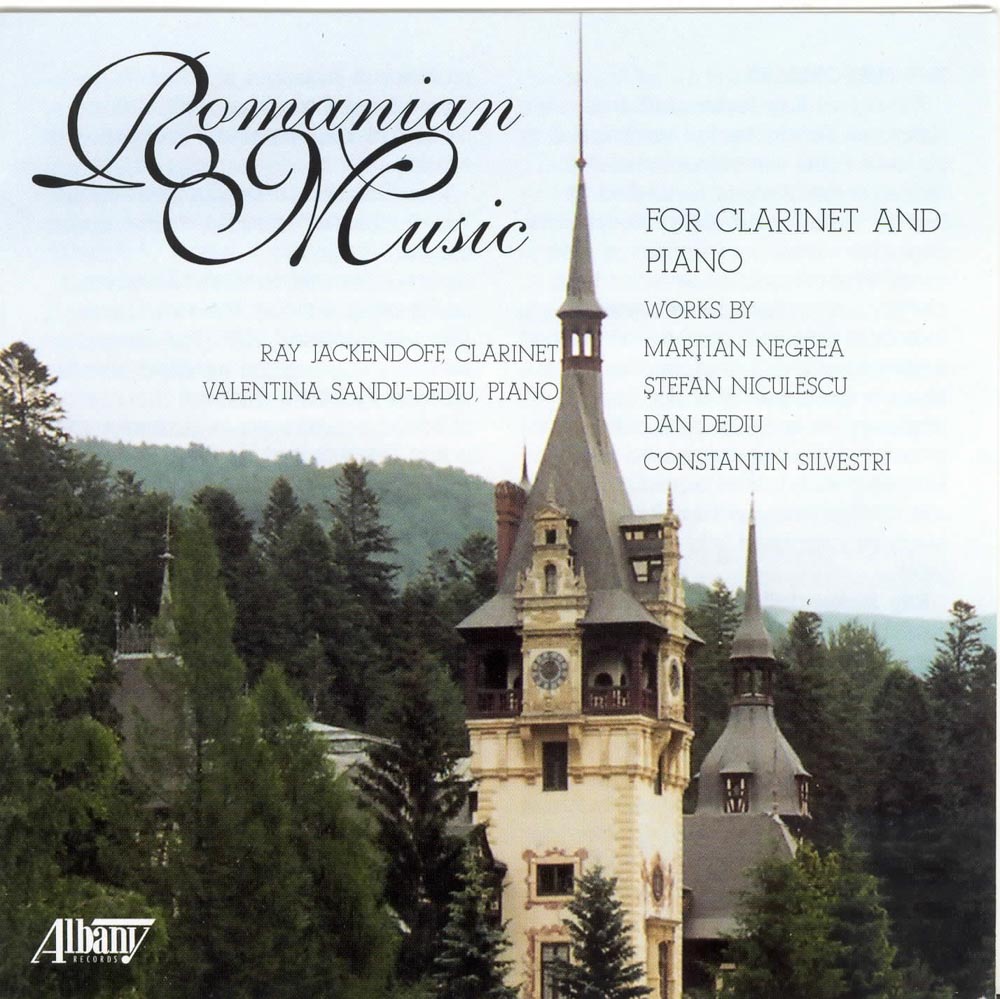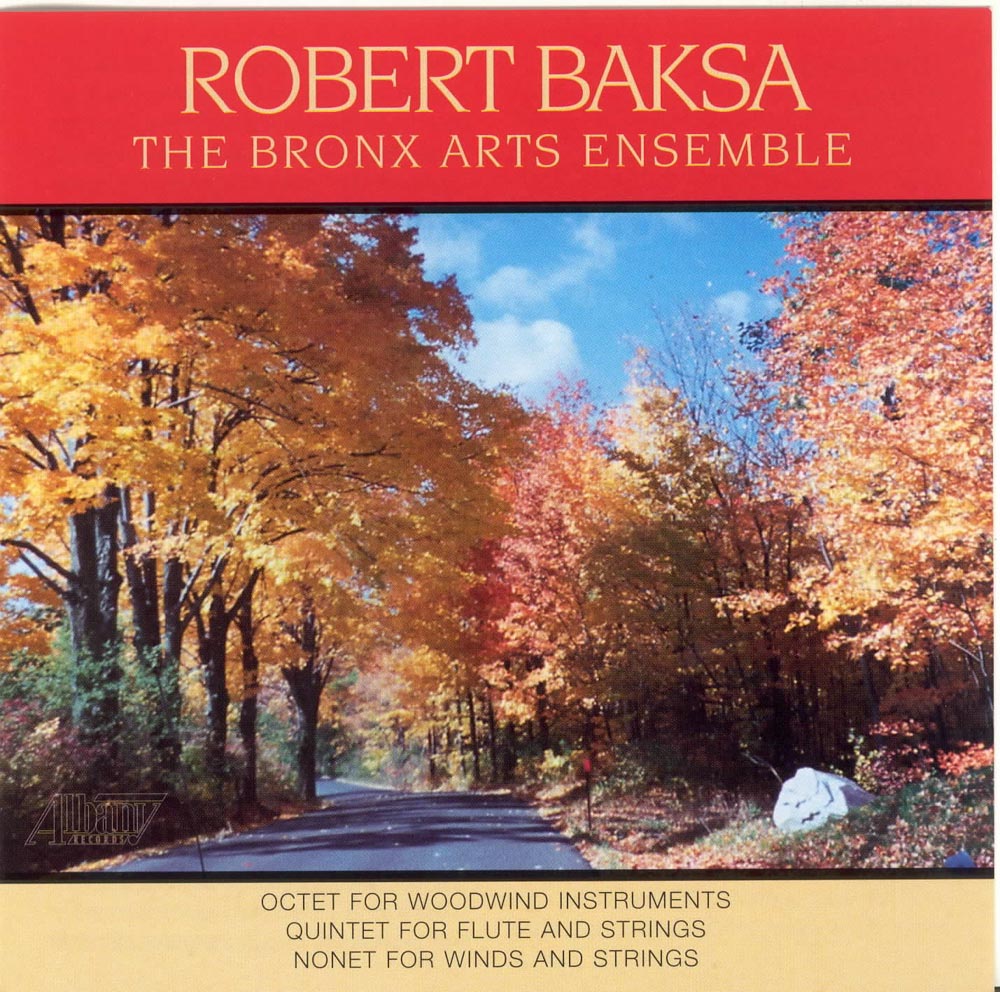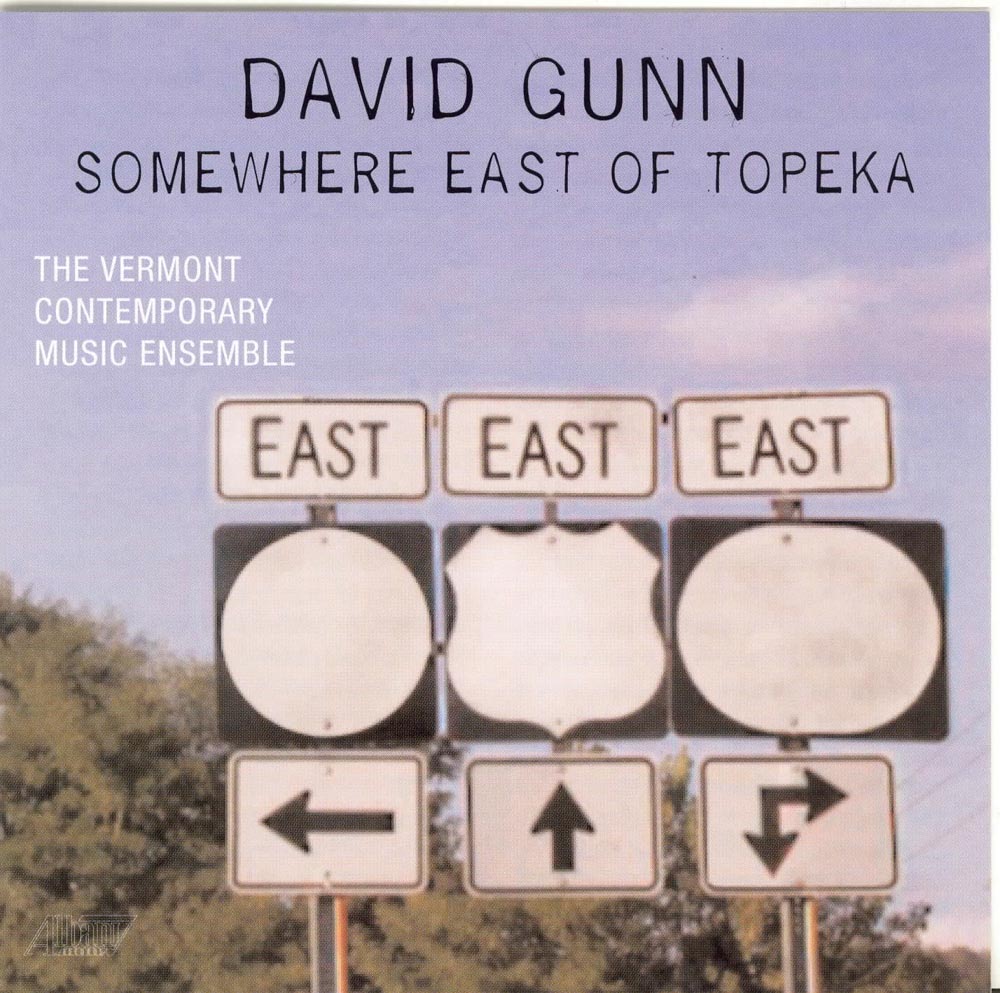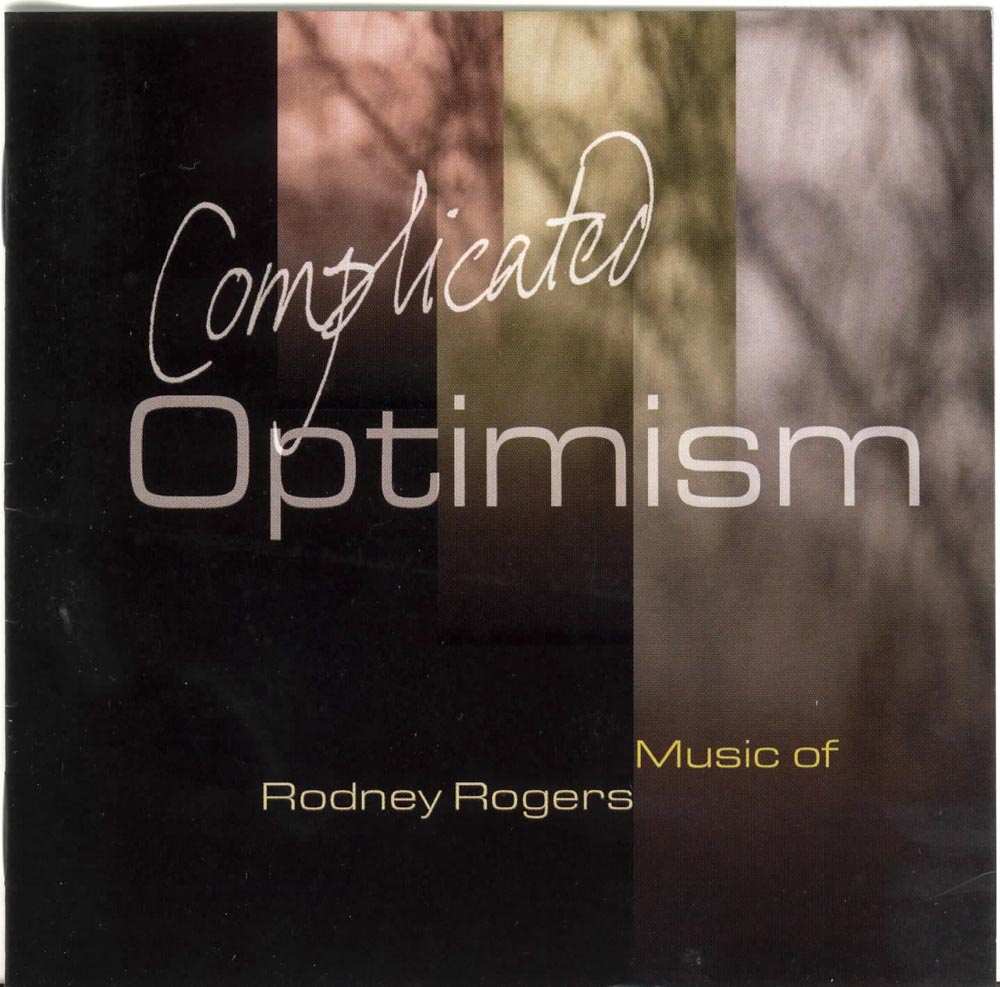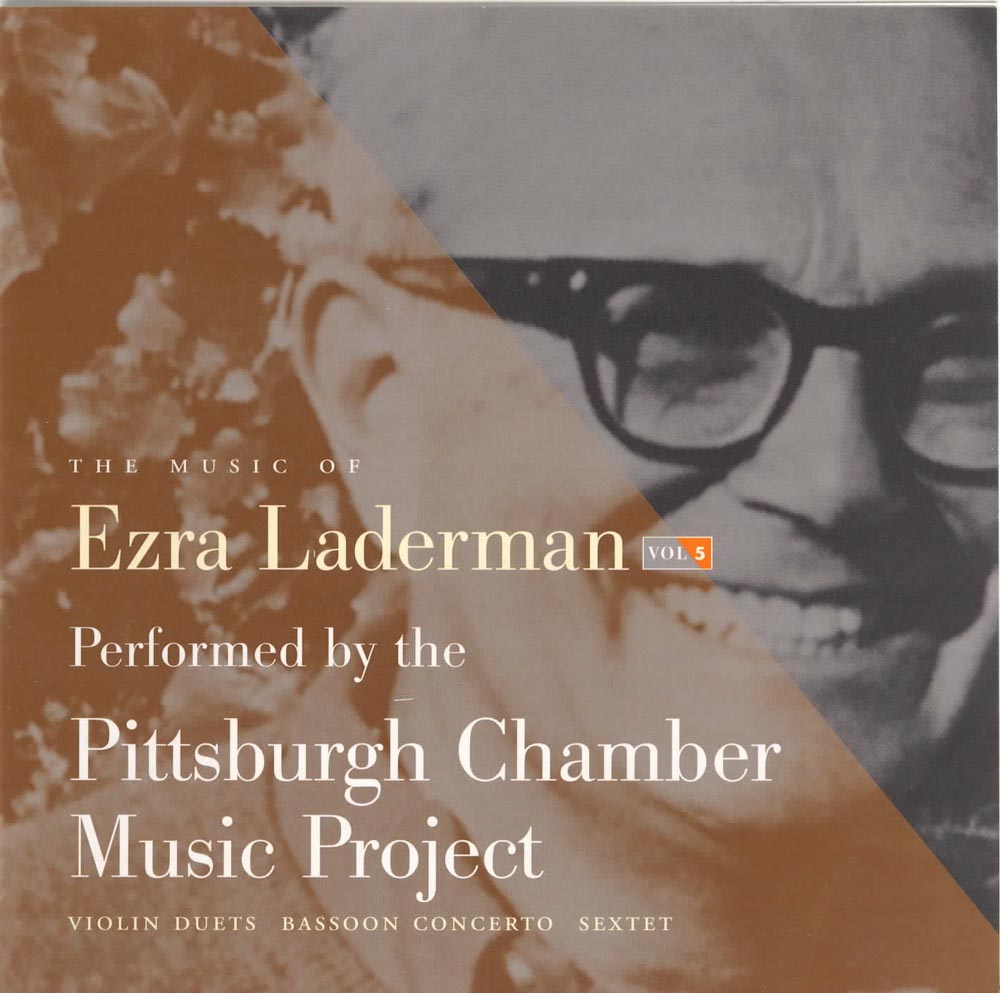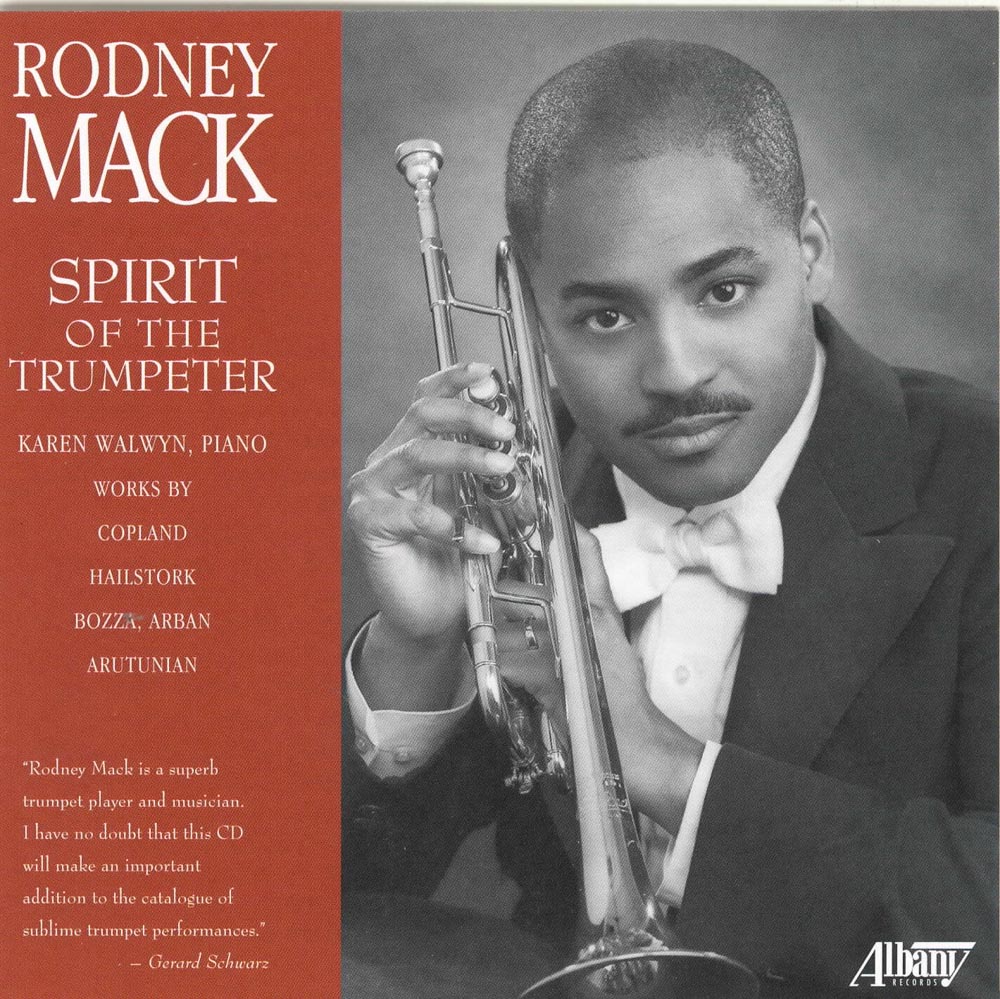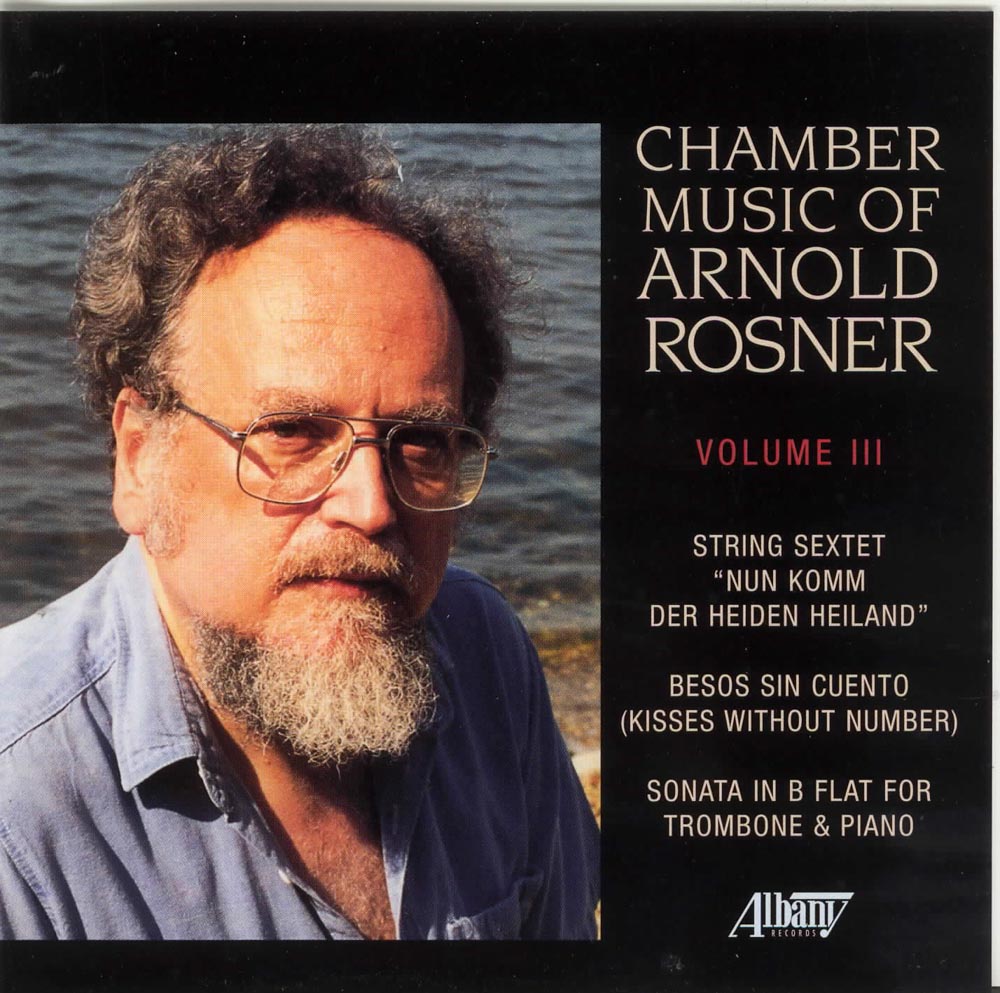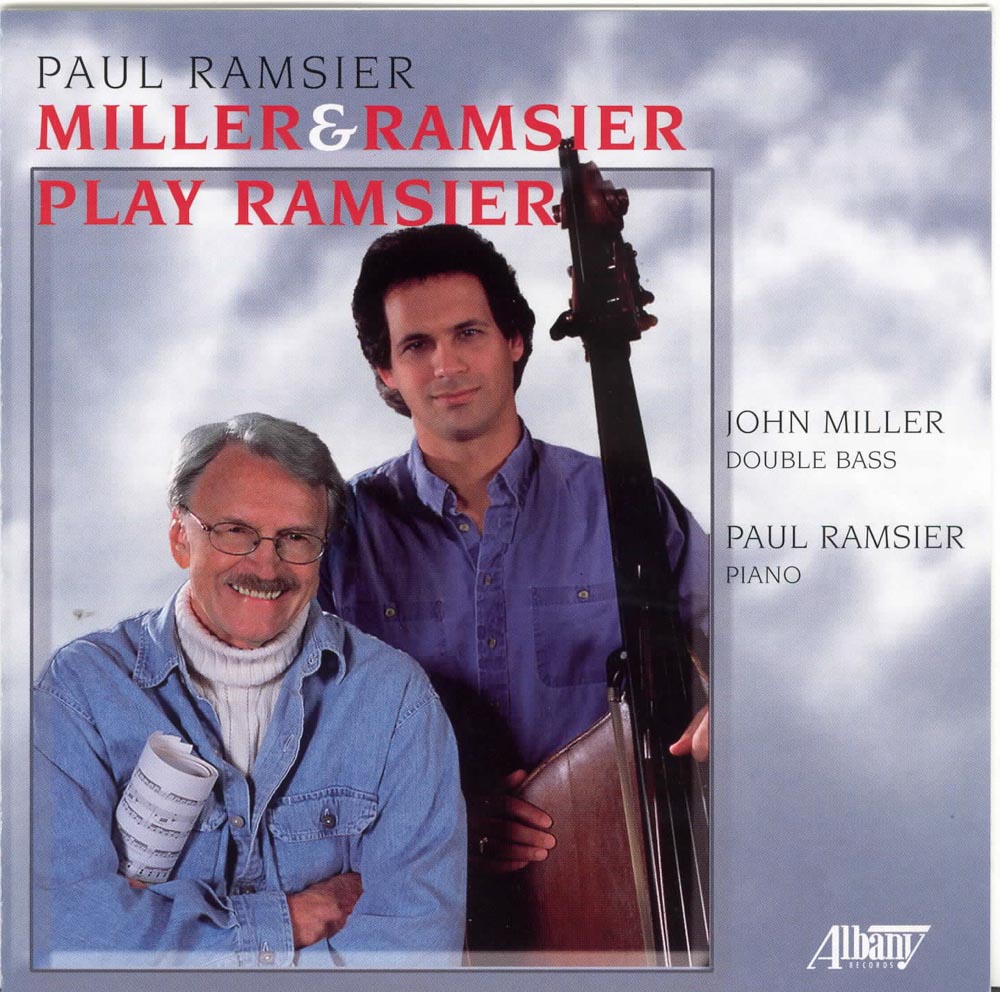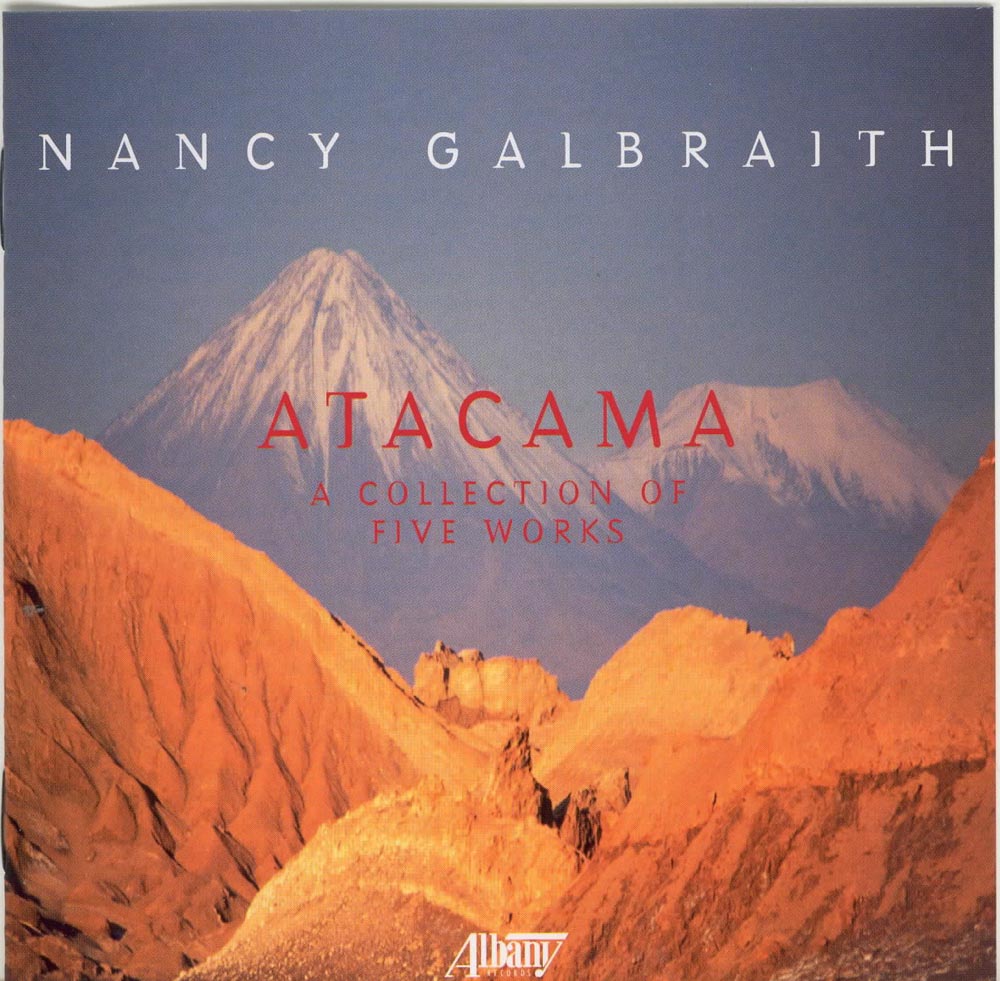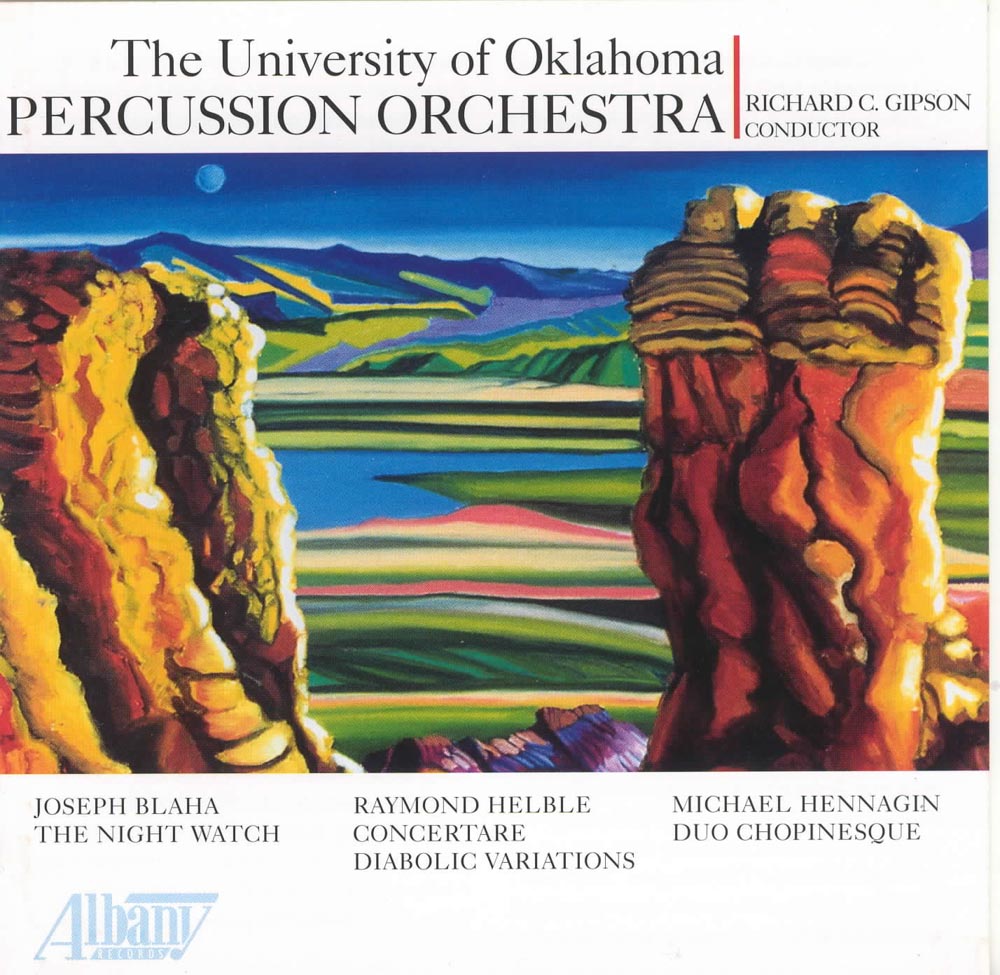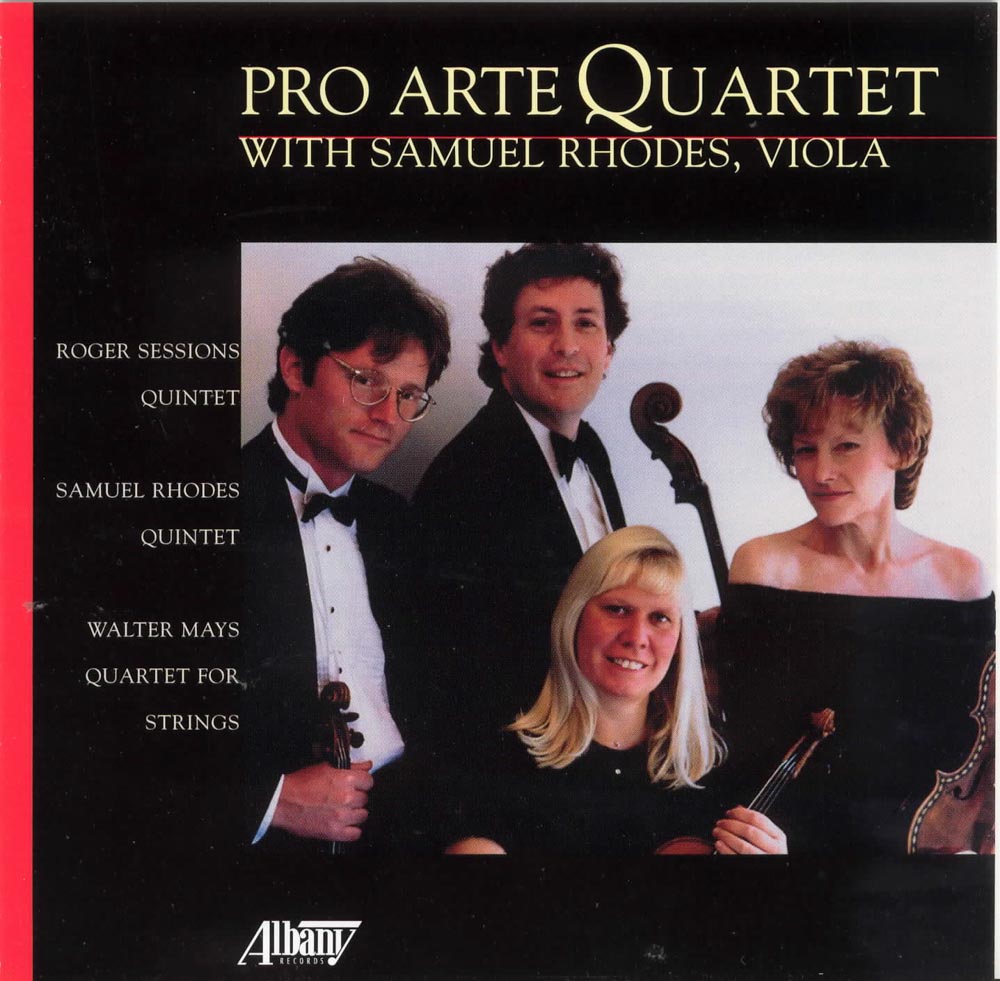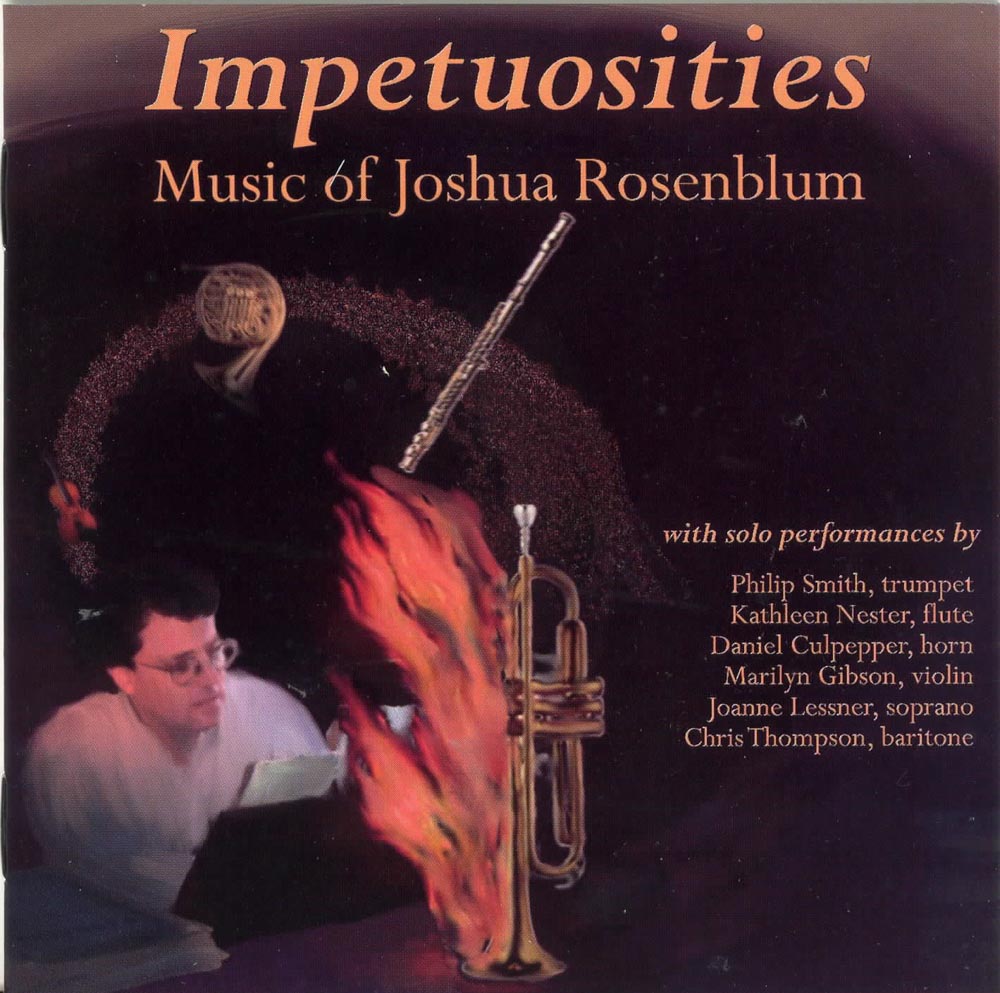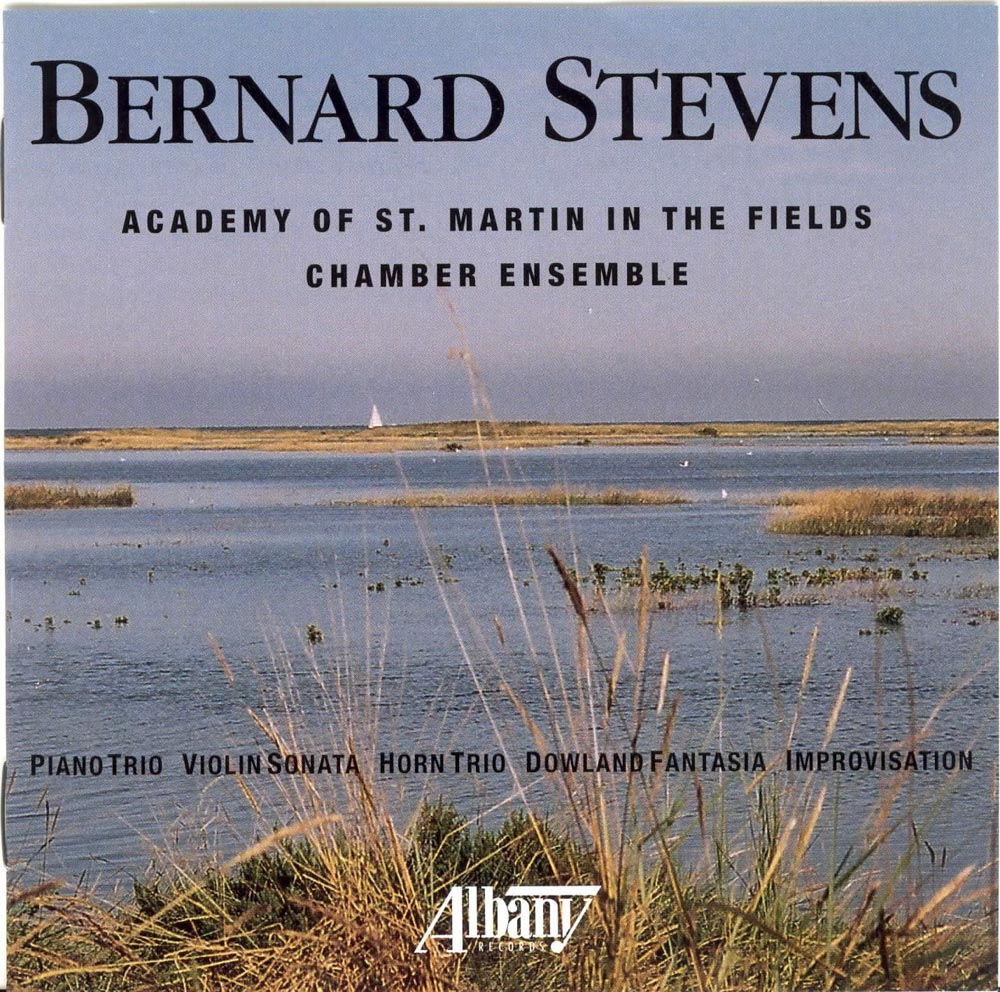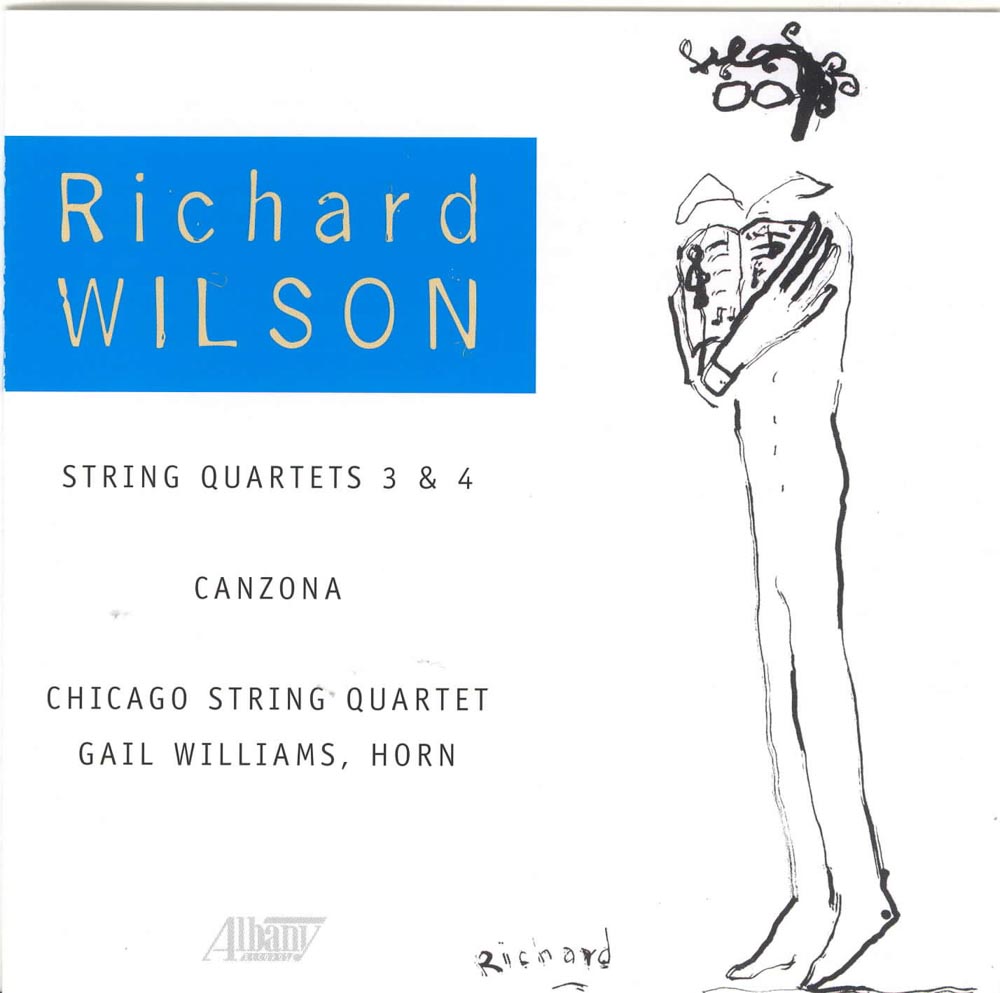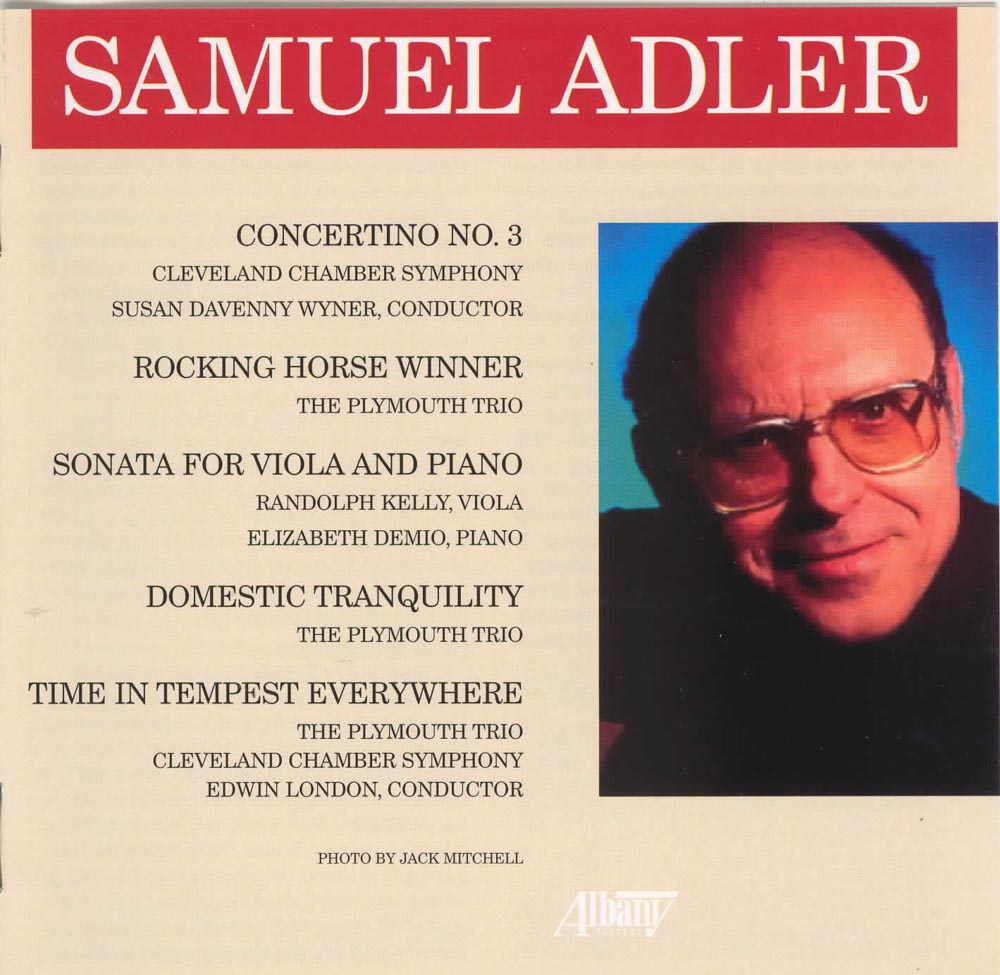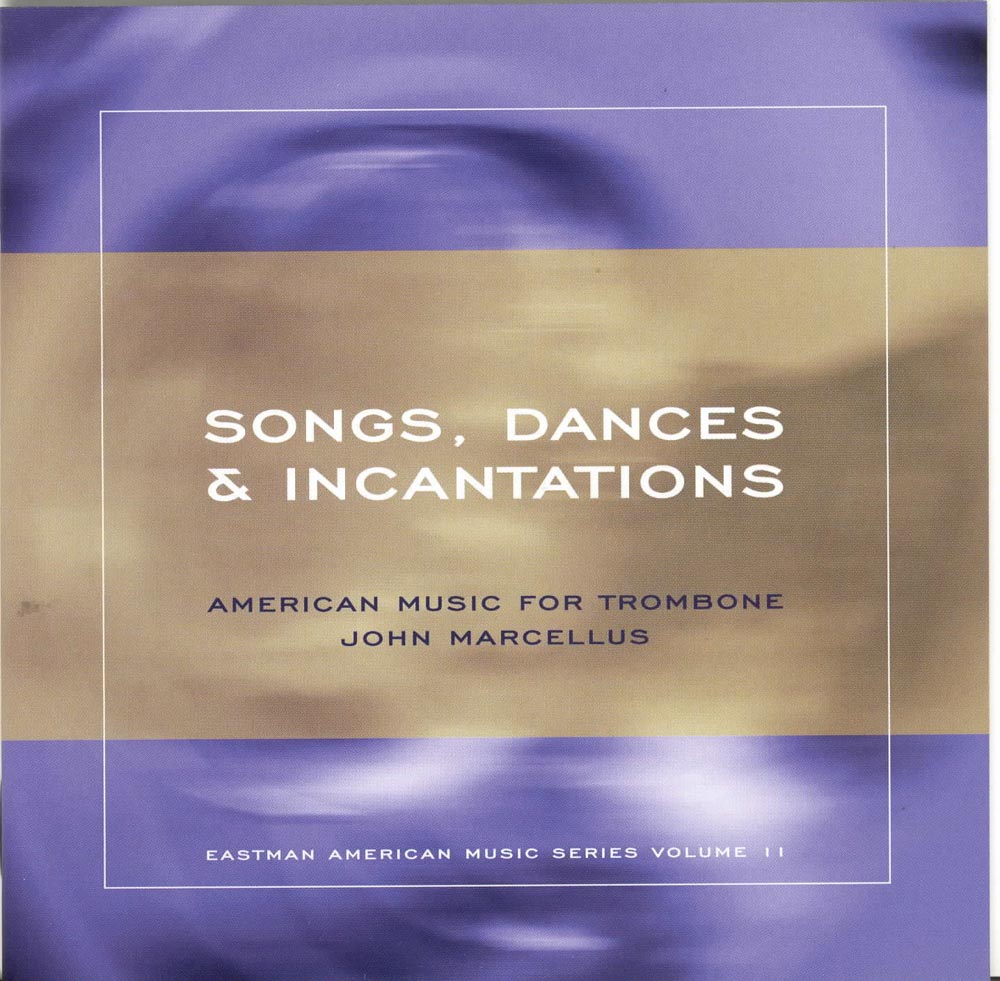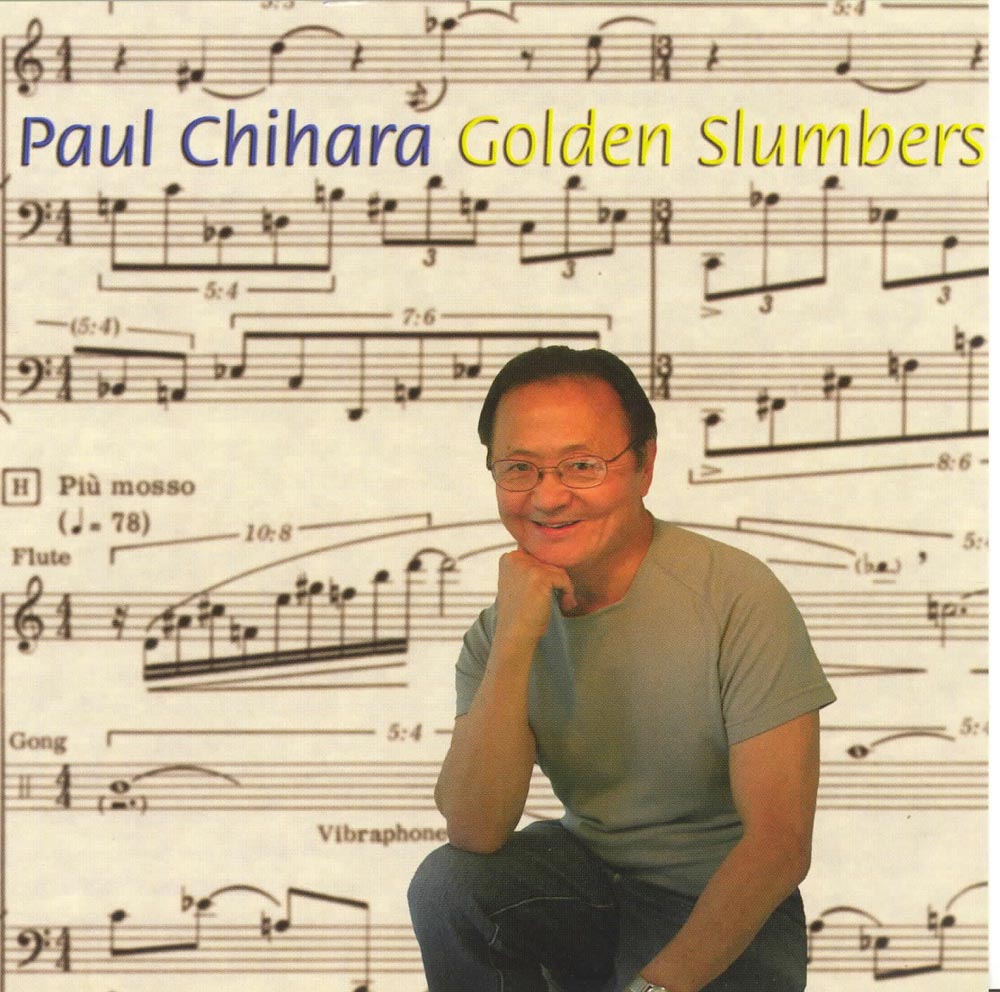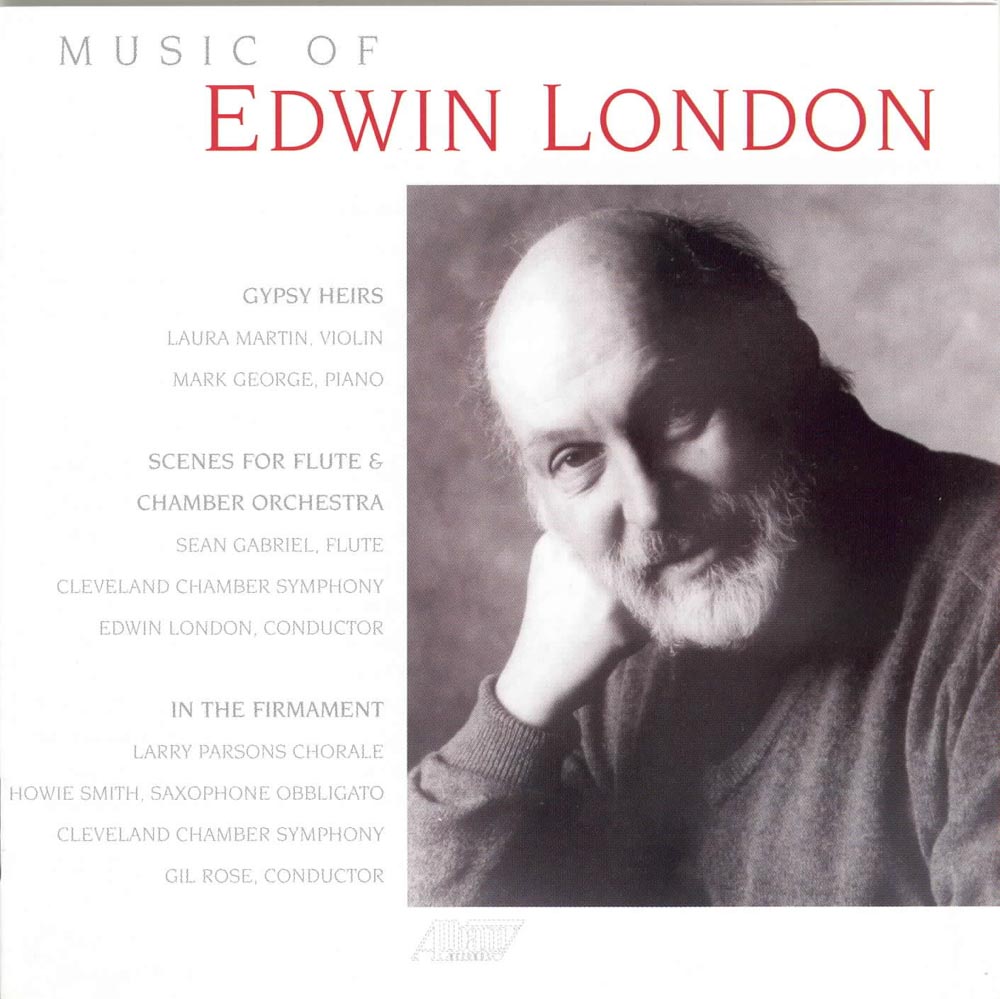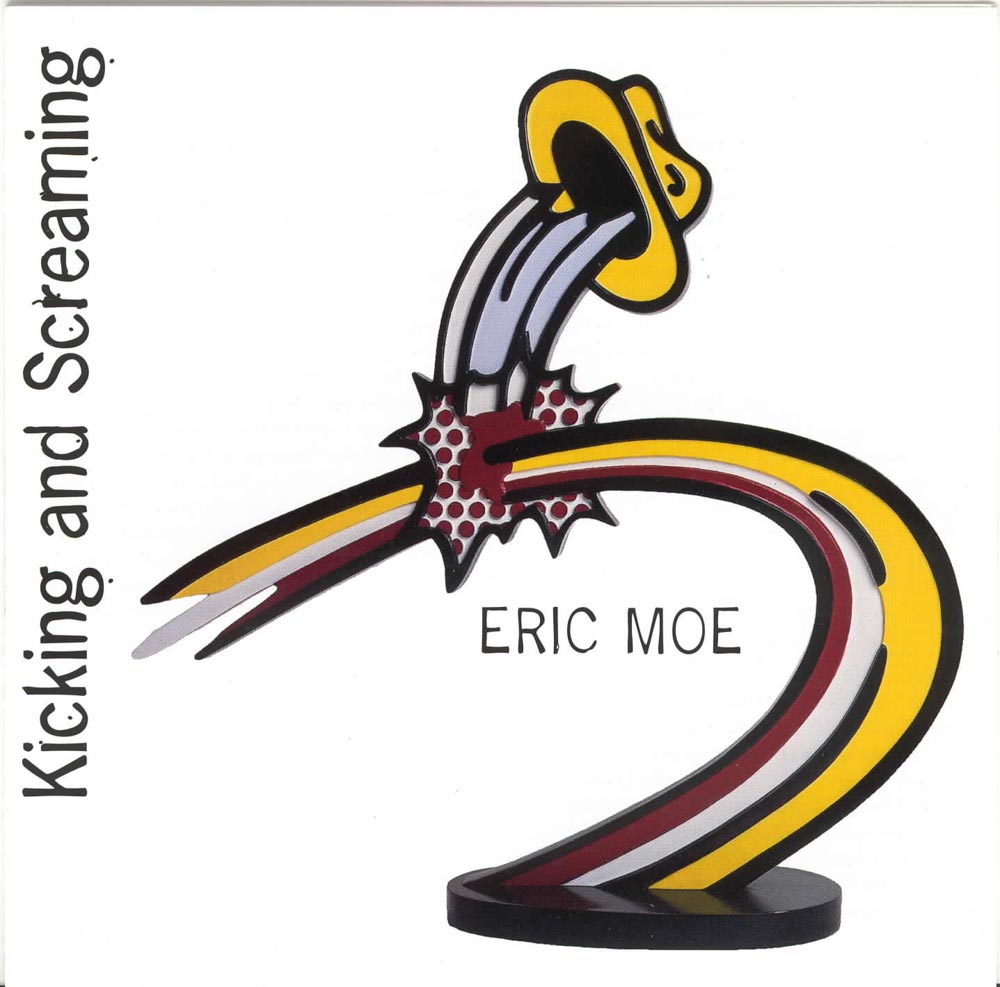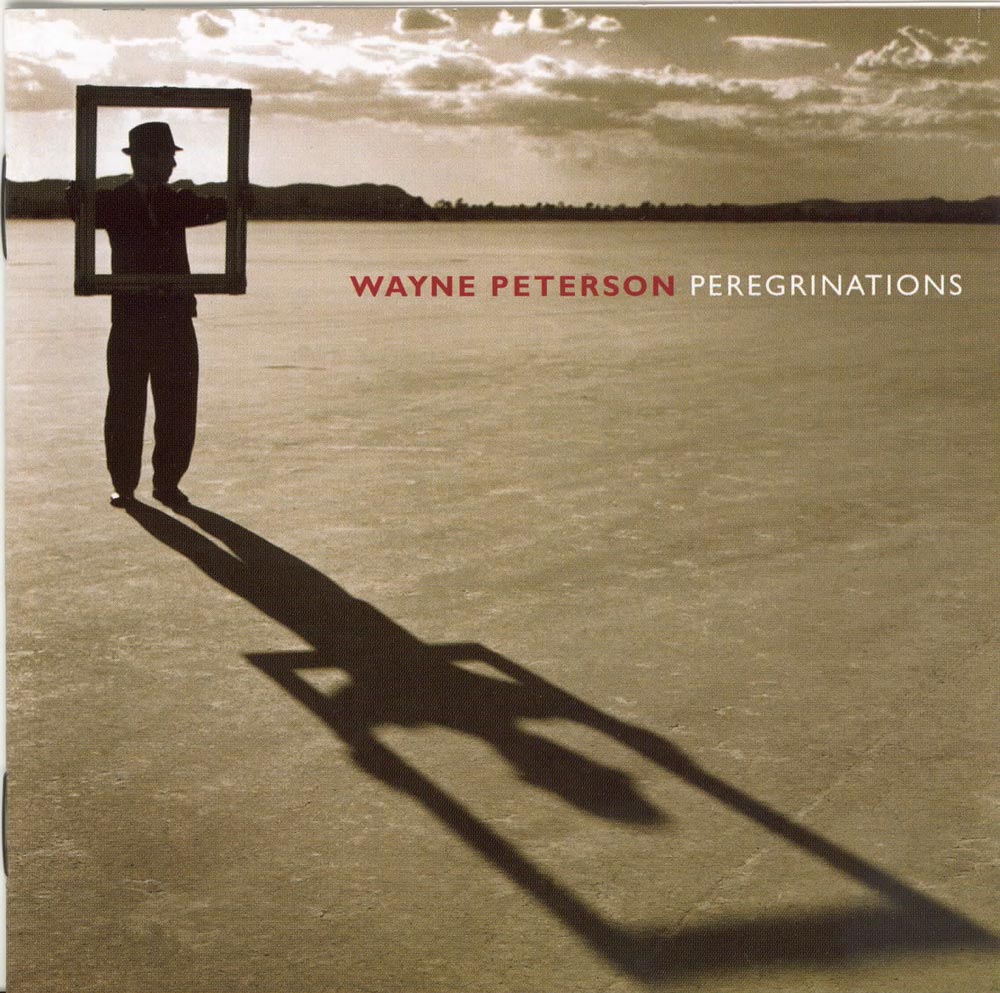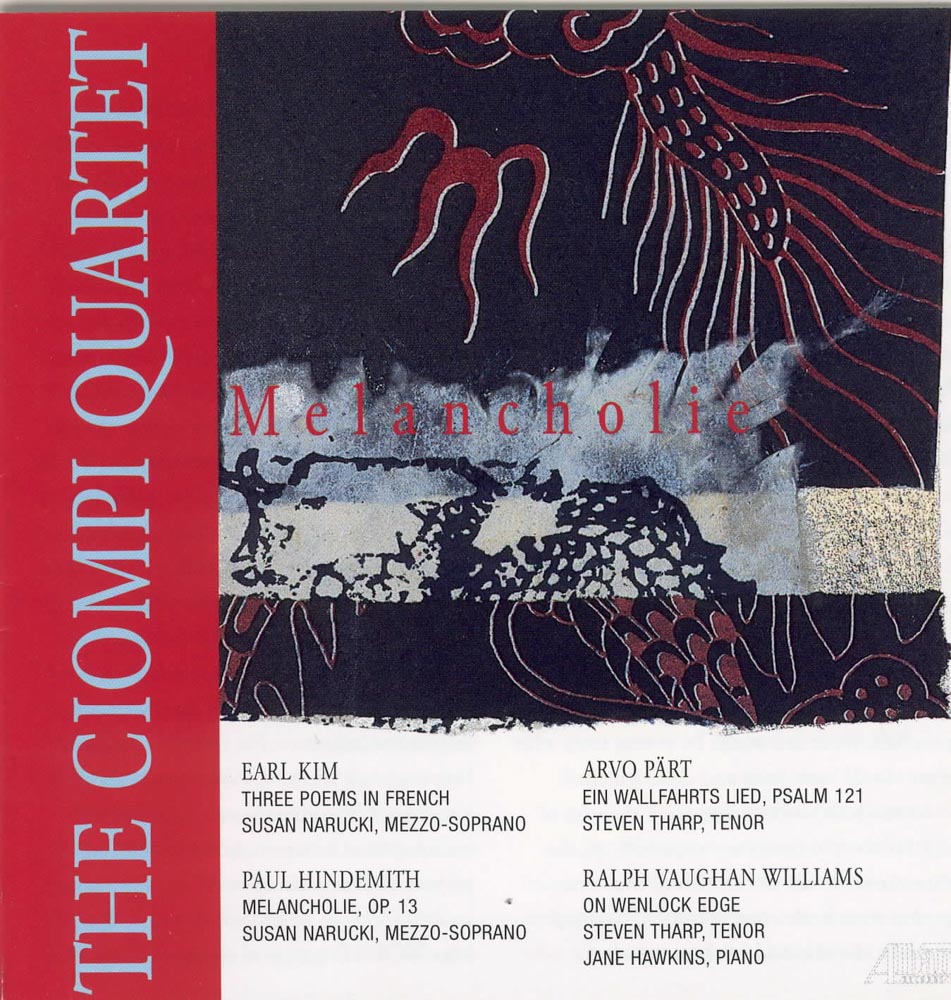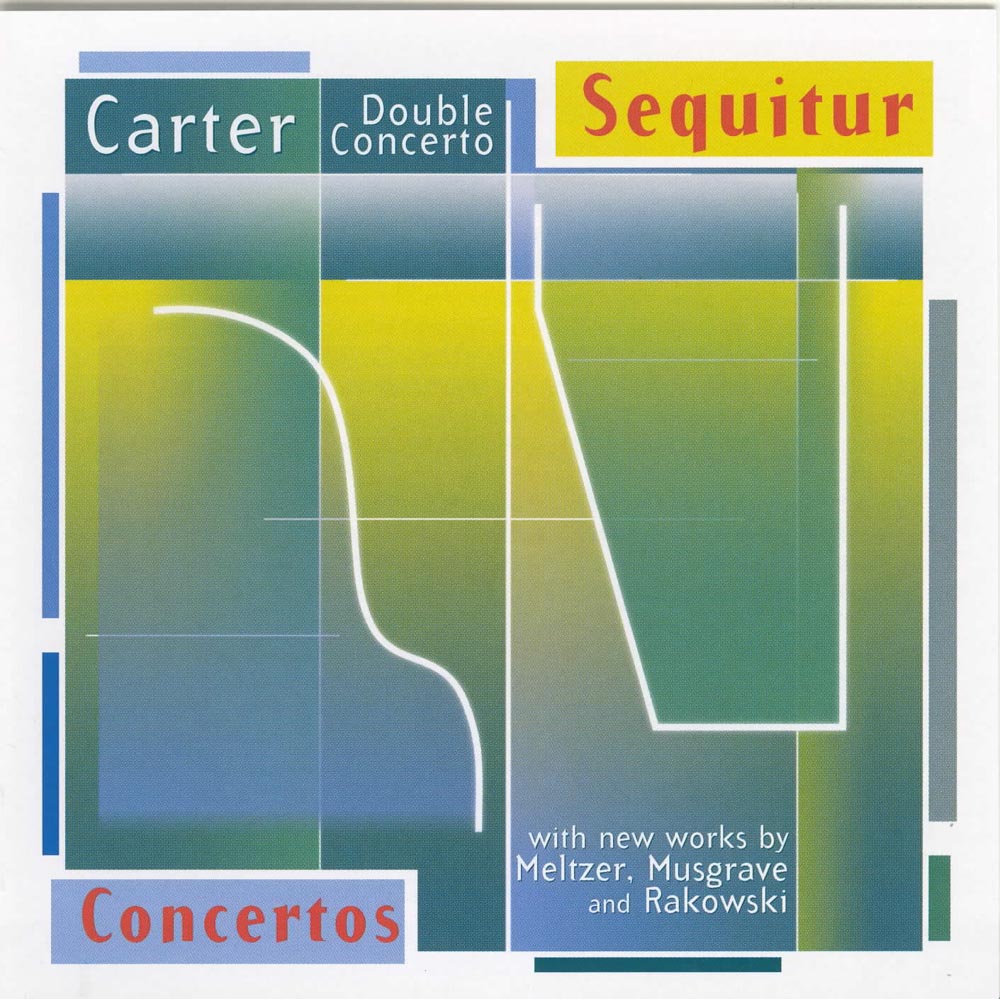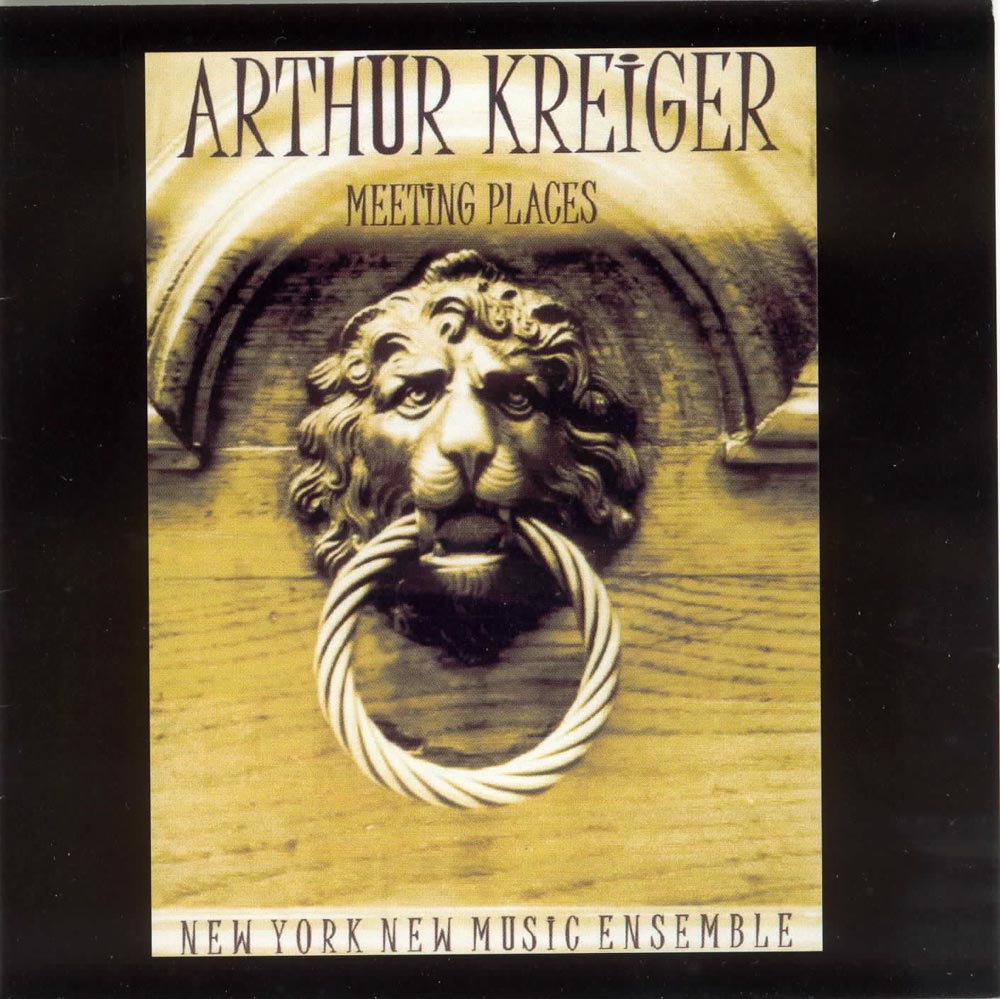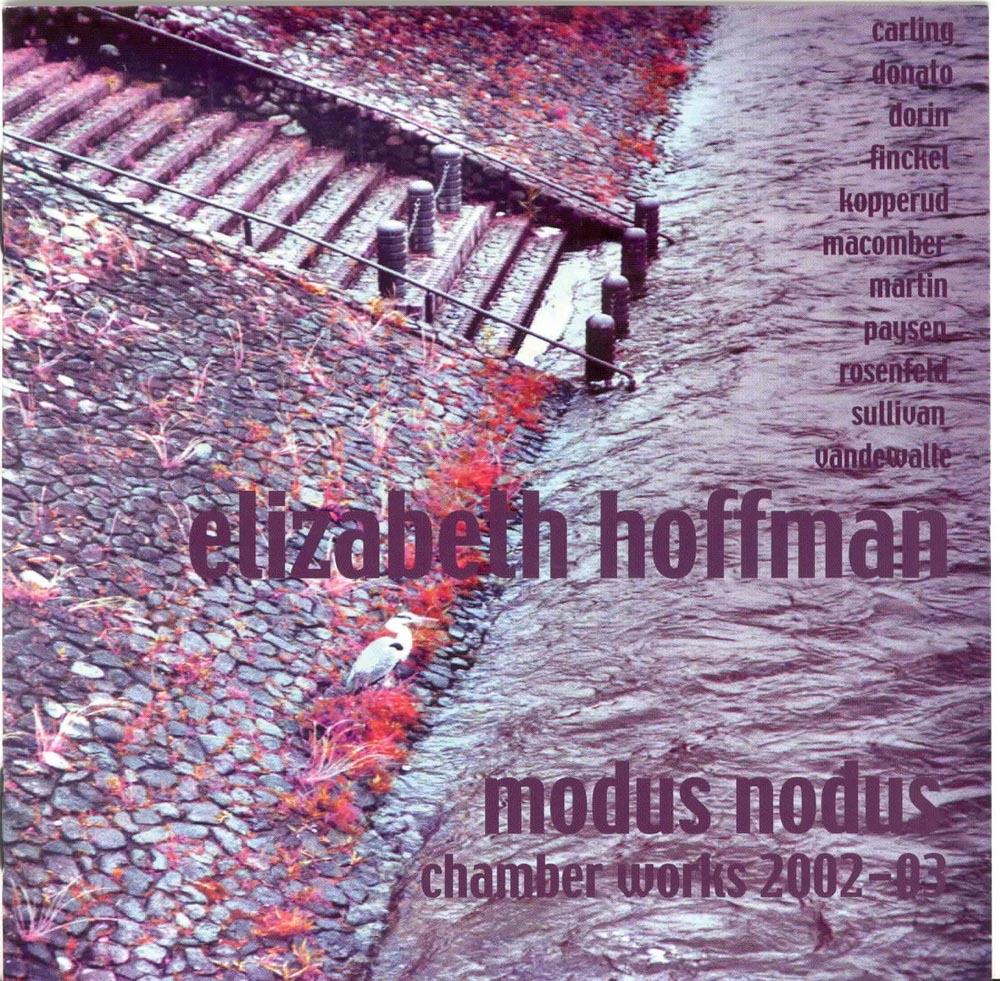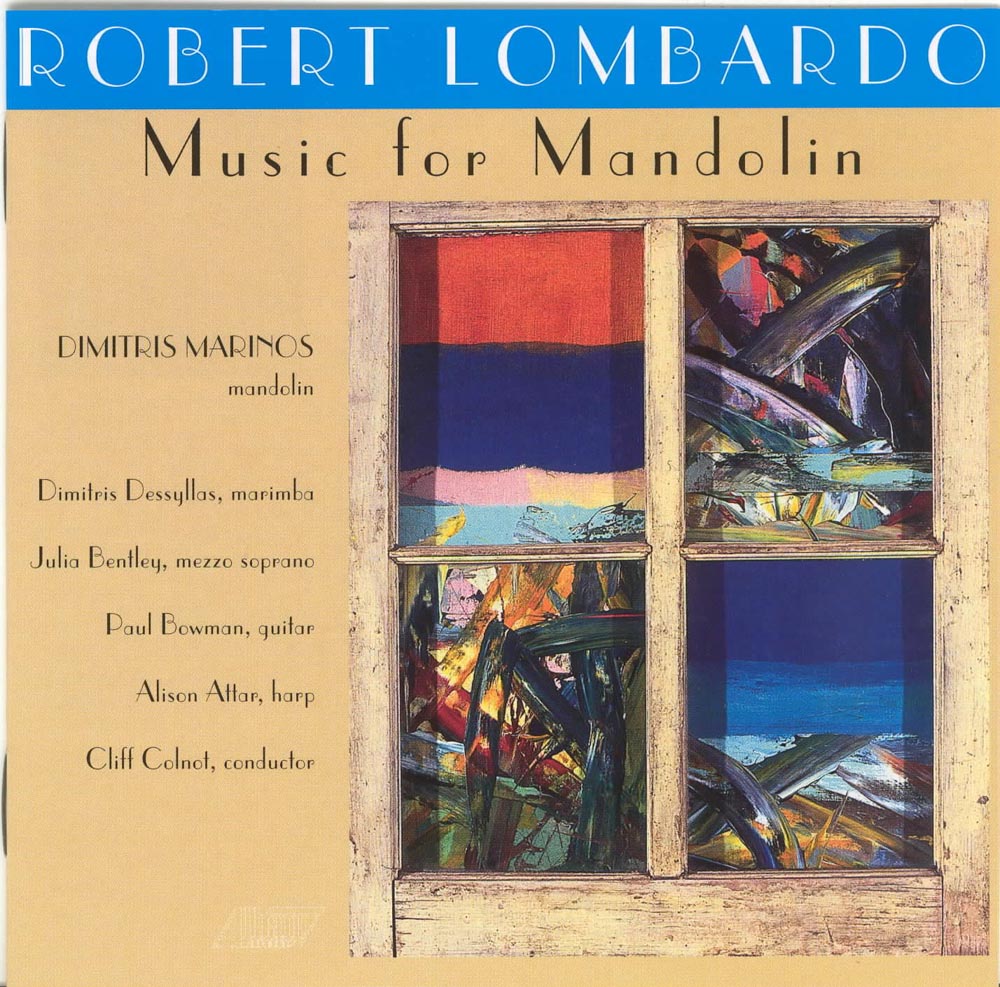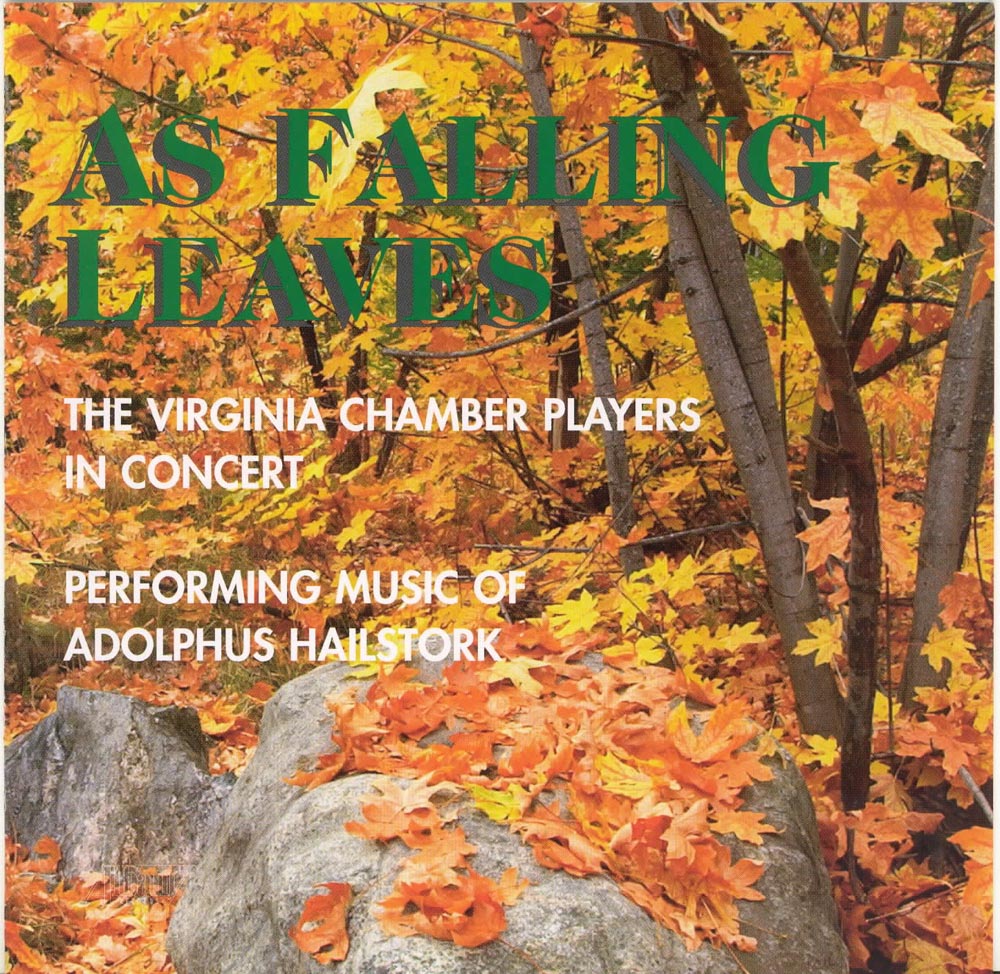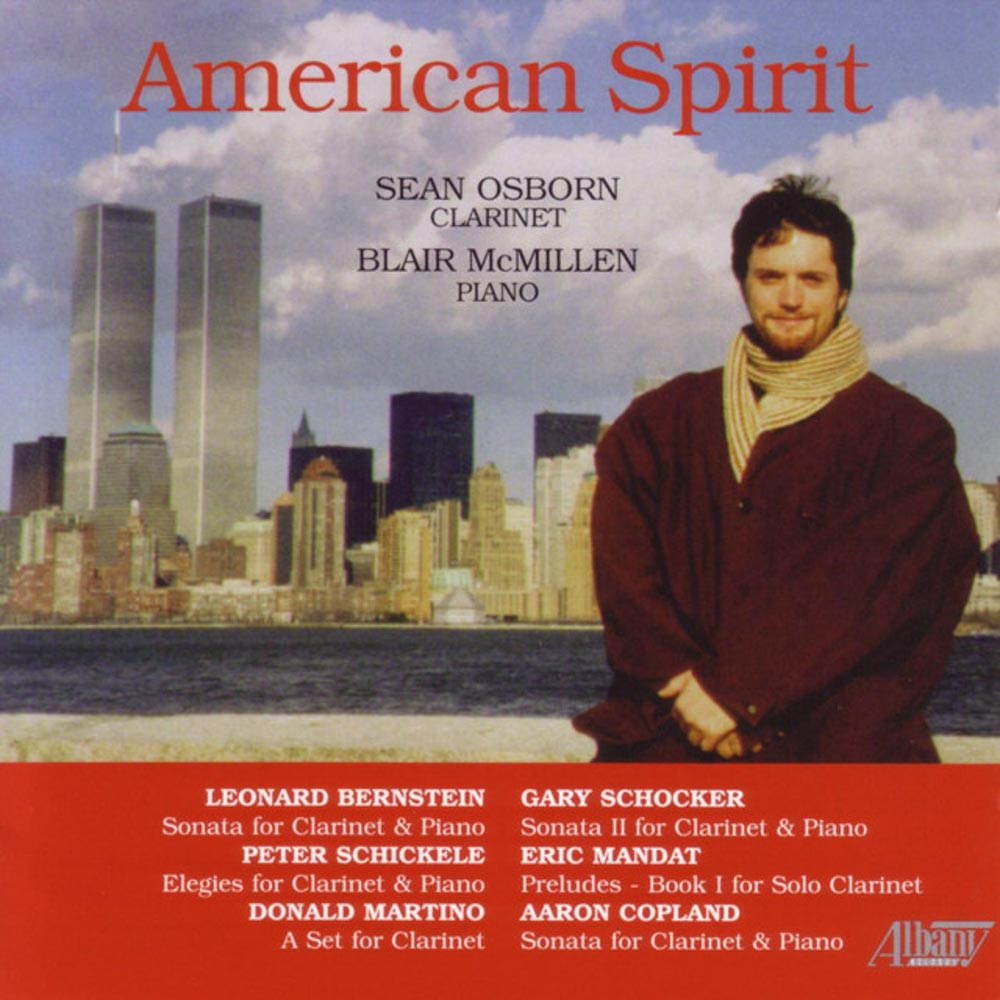Catalog #: TROY0527
Release Date: September 1, 2002ChamberAmong composers of so-called serious music over the last 50 years, few have realized the term "serious" as uniquely and powerfully as has Alvin Singleton. With many contemporary composers the seriousness of their work has been concerned with musical structure; Singleton throughout his career has answered the call of allowing his music to address crucial matters of his time. But this has always been accomplished through eloquent crafting of his musical materials. Singleton was born in Brooklyn, New York in 1940, the son of warm, witty, devoutly Christian parents. Abandoning a career as a CPA after falling in love with a Mahler symphony, Singleton studied composition at both New York University and Yale before working with Goffredo Petrassi as a Fulbright Scholar in Rome. He remained in Europe for nearly a decade and a half before returning to the U.S. to serve as composer-in-residence with the Atlanta Symphony Orchestra. Extension of a Dream, written in 1977 and revised in 1987, memorializes the brutal beating death of South African freedom fighter Steve Biko by South African police. Argoru is a word from the Ghanaian Twi language meaning "to play" and both works heard on this disc, ArgoruVII and Argoru VI are scored for solo instruments (vibraphone and marimba). Between Sisters (1990) is a musical setting of "The House Slave," a poem by former U.S. Poet Laureate and Pulitzer Prize winner Rita Dove.
Catalog #: TROY0529
Release Date: June 1, 2003ChamberIn the pieces presented here, four composers of different generations suggest a panorama of modern Romanian music in the last 70 years. The similarities and differences in style and expressive techniques do not always correlate with the time of their composition. In particular, the charming, specifically Romanian variety of impressionism in Martian Negrea's Suite contrasts radically with its contemporary, the abstract, incisive, ironic Sonata by Constantin Silvestri. The modernity of these pieces is deeply grounded in their original use of Romanian oral musical traditions from folk and Byzantine sources, of non-European traditions, and of representative 20th century musical landmarks such as Debussy, Stravinsky and Berg. The duo of Ray Jackendoff and Valentina Sandu-Dediu was founded in Berlin in 2000, where they were both Fellows at the Center for Advanced Study. What began as casual get-togethers to read chamber music quickly developed into intense and enthusiastic rehearsals. Valentina's husband, composer Dan Dediu started quietly dropping into their mailboxes, a few pages at a time, a new piece written for them. Soon plans were afoot for a number of concerts, and not long afterward, for the present recording, which offers first performances on CD of works by composers little known in the West.
Catalog #: TROY0534
Release Date: September 1, 2002ChamberRobert Baksa is one of America's most prolific composers with more than 500 works to his credit. He was born in New York City in 1938 but grew up in Tucson, Arizona. Baksa attended the University of Arizona, then returned to New York to live after spending a summer at Tanglewood. Currently he serves as Resident Composer and Coordinator of New Music for the Pleshakov Music Center in Hudson, New York. The Octet for Woodwinds was completed in 1972 and takes its inspiration from the wind serenades of the early classical period. The Quintet for Flute and Strings, written in 1973, was premiered at the National Flute Association Convention. The 1974 Nonet for Winds and Strings was commissioned by the Chamber Music Conference of the East at Bennington, Vermont. It was written to be presented during the period of the composer's tenure as Composer-in-Residence that summer and was later taken up by other chamber ensembles across the country including the Bronx Arts Ensemble, which has premiered and recorded more than a dozen of Baksa's chamber works.
Catalog #: TROY0535
Release Date: January 1, 2003ChamberDavid Ross Gunn began his musical training at Settlement Music School in Philadelphia, studying piano and percussion. He later graduated from Ohio State University with a degree in music composition. It's easy to be dismissed as trivial when your music is attractive, and with David Gunn's music, that would mean missing out on its real attraction. Long before it was fashionable, Gunn used clear-cut rhythms, evident melodies, and explicit harmonies - all while moving music forward into new territory, not backward into some neo-romantic haze. Besides being a composer, Gunn is also a writer, humorist, a new music radio show co-host. He currently lives in the middle of Vermont and in hope of, in order, peace on earth, good will towards men, and a pile of cash in the bank.
Catalog #: TROY0536
Release Date: November 1, 2002ChamberRodney Rogers has written music for a wide variety of media, including orchestra, chorus, wind ensemble and chamber groups. He first gained national recognition as a composer while in college with BMI Awards, the ASCAP Foundation Grant for Young Composers and a fellowship to Tanglewood. Named "Distinguished Composer of the Year" in 1989 by the Music Teachers National Association for his composition Riffing in Tandem, he has also received a NEA Consortium Commission and residencies at the MacDowell Colony and Yadoo Artist Colony. Today, he is on the composition faculty at Arizona State University in Tempe, Arizona.
Catalog #: TROY0537
Release Date: November 1, 2002ChamberFor five decades Ezra Laderman has been privileged to be performed by the musicians of Pittsburgh. The Pittsburgh Symphony has collaborated with him a number of times; in 2003 the orchestra will feature its bass clarinetist, Richard Page, in a new Laderman concerto that it has commissioned. Other of the city's ensembles over the years have been equally staunch supporters of the composer's work. The newest of them, The Pittsburgh Chamber Music Project, commissioned and premiered Laderman's 1997 Sextet for English horn, bass clarinet and string quartet. Laderman is an attentive collaborator. He gets to know the musicians as people, and in composing his works often chooses the performer's personalities as a point of departure. Certainly he has done so in a number of his string quartets, a genre for which he is deservedly celebrated. The composer's Violin Duets were composed in 1998. Like the works by Bartok and Berio, they are miniature meditations, each composed in a single session, a day, a few hours, that performed together accumulate artistic weight through comparison and contrast. A year after graduating from Columbia University in 1952, Laderman began work on a Concerto for Bassoon and Strings. He completed the concerto in 1954, and it was given a reading by Bernard Garfield (who, later, for many years, was the principal bassoonist of the Philadelphia Orchestra) and the National Symphony under Leon Barzin. But, aside from a student performance at Juilliard, the work remained on the shelf for more than forty years. Laderman completely overhauled the work in 2000 and the result is what is recorded here.
Catalog #: TROY0544
Release Date: November 1, 2002ChamberPilgrim Chamber Players was founded in 1996, and began its journey as a woodwind quintet. Very quickly the group expanded its programming to include strings, keyboard and voice. Pilgrim Chamber Players' talented ensemble of professional musicians are resident artists of the Highland Park (Illinois) Community House and perform throughout the Chicago area. The group is here pleased to present this collection of compositions by its resident composer, Donald Draganski. As one of the founding members, Draganski's role evolved from principal bassoon player to that of composer-in-residence. Earning his Bachelor of Music degree from DePaul University, he studied bassoon under the late Wilbur Simpson and composition with the late Alexander Tcherepnin. After receiving his Master's of Library Science, he was the music librarian at Roosevelt University, a position he held for 25 years until his retirement in 1998. Born in Chicago, he currently makes his home in Evanston.
Catalog #: TROY0552
Release Date: February 1, 2003ChamberThe sound of Rodney Mack's trumpet has reverberated throughout the world; whether playing baroque piccolo trumpet or interpreting works commissioned especially for him. He was born in New Orleans where he began his musical studies at the age of six. When he was eleven, he began taking classical trumpet lessons with his cousin, Wynton Marsalis. He made his solo debut with the New Orleans Symphony at the age of fifteen. At the age of nineteen, he performed as a soloist with the Boston Pops. Classical concert pianist Karen Walwyn made her New York recital debut at Merkin Hall. The concert was quickly followed by her debut performance on National Public Radio. She has served on the faculties of the School of Music at the University of Michigan in Ann Arbor and at Southwest Missouri State University in Springfield.
Catalog #: TROY0553
Release Date: February 1, 2003ChamberThe composer writes: "Attracted I guess to the Dvorak Sextet and the two by Brahms, I ventured in 1970 to write a Sextet of my own. From the outset, I wanted the added symphonic richness afforded by six parts, but with each of the players having plenty of developmental and contrapuntal linear activity. The Lutheran hymn, Nun Komm der Heiden Heiland stimulated me, much more in the mid-Baroque setting by Praetorius than in the fully-tonal (and thus predictable if better known) J.S. Bach version. I decided to make this tune the crown of the Sextet. My Spanish Songs Besos sin Cuento resulted from two motivations, and it should be admitted from the outset that I have absolutely no knowledge of the Spanish language other than certain culinary terminology. For some time, I was drawn to the remarkable songs in the Sephardic tradition more than 500 years old and my motivation was to find some poetry of this heritage that had not yet been musically set. As I have felt driven to compose songs in as many languages as possible, I have also wanted to write sonatas or concertos for all the standard orchestral instruments. Over many years, I realized I had come fairly close, and decided in the mid 90s to fill in the gaps, at that time clarinet, bassoon, trombone and double bass. As of this writing (2002) only bassoon and double bass remain. The power and nobility of the trombone cannot and should not be denied, and my sonata, therefore, is rather
Catalog #: TROY0554
Release Date: December 1, 2002ChamberPaul Ramsier's doublebass compositions have established the composer as a major figure in the evolution of the instrument. His larger compositions are the most widely performed contemporary works for doublebass and orchestra. These compositions have set new standards for the instrument through more than one hundred fifty performances with orchestras. In the fall of 1999, Ramsier moved from New York City to Sarasota, Florida, where, he says, "I discovered that John Miller, principal bass of the Florida West Coast Symphony, is a world-class soloist of rare gifts." During the summer of 2001, Miller suggested that he and Ramsier make a recording of some of the composer's compositions for doublebass that had not been recorded. Ramsier was initially hesitant to practice the piano again, but Miller and others felt that a composer's participation adds a touchstone for performers - especially when compositions are published - and becomes a historical reference as well. This new CD is the result of this collaboration.
Catalog #: TROY0555
Release Date: December 1, 2002ChamberRecently hailed for her "unparalleled artistry," Julianne Baird, soprano, is "one of the most extraordinary voices in the service of early music." Her busy recital and oratorio schedule includes recent appearances in Lincoln Center, Philadelphia's Academy of Music, Symphony Hall in Chicago, Severence Hall, and the Kennedy Center. James R. Oestreich, in his comprehensive survey of New York's seasonal performances of Handel's Messiah for The New York Times, recently concluded with special praise for Julianne Baird's interpretive skills: "in that respect, Ms. Baird remains the model." Darin Kelly enjoys a reputation as one of the Philadelphia area's foremost soloists in the Baroque repertoire. Stephen Alltop enjoys a busy career performing with modern and period ensembles as a keyboard artist and conductor.
Catalog #: TROY0556
Release Date: February 1, 2003ChamberNancy Galbraith has emerged as one of the present era's most original and influential musical voices. Her distinctive American style employs an exotic array of postmodern and postminimalist elements including lyricism, polyrhythmic and diatonic harmony. Her work has been praised for its energetic combination of melody and rhythm, and its bright orchestral palette. She is currently recognized as a leader in the field of wind ensemble writing. Her compositions for this genre have become standard repertoire for ensembles throughout the United States and appear on many recordings. She is also an accomplished organist and pianist and has composed a number of works for these instruments. She was born in Pittsburgh and educated at Ohio University, West Virginia University, and Carnegie Mellon University, where she presently serves as Professor of Composition and Theory.
Catalog #: TROY0567
Release Date: March 1, 2003ChamberJoseph Blaha is currently assistant professor of music and director of bands at Roanoke College in Salem, Virginia. In 1983, he enrolled as a doctoral student in composition at the University of Oklahoma and studied with Michael Hennagin earning a DMA in 1991. Raymond Helble, a native New Yorker, studied at the Eastman School of Music with Sam Adler, Wayne Barlow and Joseph Schwantner. A highly polished finish, elaborate motivic development, contrapuntal dexterity, and a concentrated intensity of expression, mark Helble's work, whether he uses tonal, serial, modal, or atonal materials to fashion his work. Born in The Dalles, Oregon, Michael Hennagin composed in virtually every medium including music for film, television, and stage. His broad repertoire includes instrumental and vocal solos, various chamber ensembles, symphonic band, orchestra, and a large body of choral music for which he is widely recognized. He joined the faculty of the University of Oklahoma in 1972 and retired in 1992 to devote full time to his active composing schedule. He died suddenly in June 1993.
Catalog #: TROY0569
Release Date: May 1, 2003ChamberAcclaimed by the San Francisco Chronicle as "one of the great quartets of our times," the Pro Arte Quartet has enjoyed a long and distinguished career as one of the most enduring string quartets in existence. Founded in Brussels in 1912 by violinist Alphonse Annou and violist Germain Prevost, the Pro Arte became the court quartet to Queen Elisabeth of Belgium. Its world reputation soared with a European tour in 1919, earning the group such outstanding acclaim that many composers - including Bartok, Milhaud, and Honegger - composed new works for the Pro Arte. In 1940, stranded in the United States by the outbreak of World War II, the University of Wisconsin-Madison offered the Quartet the position of Artist-in-Residence, which continues to the present day. Current members, David Perry and Suzanne Beia, violins, Sally Chisholm, viola, and Parry Karp, cello, have continued the Pro Arte legacy. The guest artist on this CD, Samuel Rhodes, has been a member of both the Juilliard String Quartet and the faculty of the Juilliard School since 1969. His Quartet was written while he was studying for his Master of Fine Arts degree at Princeton (with Roger Sessions) shortly before he joined the Juilliard String Quartet. Sessions's influence is very much felt in the piece, especially in the first movement.
Catalog #: TROY0571
Release Date: April 1, 2003ChamberJoshua Rosenblum is a composer, pianist and conductor. He is a graduate of Yale College and the Yale School of Music. He is the composer and co-lyricist of the cult hit musical Fermat's Last Tango, which enjoyed a successful Off-Broadway run at the York Theater, as well as the forthcoming musical Einstein's Dreams, based on the best-selling novel by Alan Lightman. Equally comfortable in the contemporary classical idiom, he has written numerous commissions and has received awards from ASCAP and Meet the Composer. His choral setting of "Jabberwocky" won the Ithaca College Choral Composition Contest, out of 200 entries nationwide. Rosenblum has conducted ten Broadway and Off-Broadway shows, including Miss Saigon, The Music Man, Anything Goes and Falsettos. He has appeared as pianist with the New York Pops and the American Symphony Orchestra. He is also highly sought after as an exponent of experimental, innovative, and unusual works of new music theater. He is also a music journalist who has written articles for Newsday, Stagebill and reviews for Opera News.
Catalog #: TROY0572
Release Date: August 1, 2003ChamberBernard Stevens was born in London and studied at Cambridge and the Royal College of Music in London, where he gained the highest awards. After his army service he came briefly to national prominence in 1946 with a highly acclaimed performance in Albert Hall of his deeply considered and utterly un-jingoistic Symphony of Liberation, which won a competition sponsored by the Daily Express newspaper for a "Victory Symphony " to celebrate the end of World War II. Stevens spent much of the rest of his career lecturing at the RCM (also, latterly, at the University of London), and was a tireless champion of contemporary music, an indefatigable examiner, and that rare being, a born teacher - whose warmth, encouragement and intellectual stimulation is remembered with gratitude and respect by his many pupils. In the 1950s and 60s, as Britain strove to catch up with the Continental avant-garde, his robust independence of fashion hardly helped to gain his works prestige. Nor did his politics endear him to the establishment. Occasionally, wryly, he spoke of himself as one of an "almost lost generation" of British composers; yet as a craftsman and a musical mind he must be judged one of that generation's leading figures. Since his death in 1983, there has been a remarkable upsurge of interest in Stevens's output. His music impresses the hearer immediately by its warmth and imaginative logic, its firm architecture and commitment to the traditional crafts of counterpoint and variation. His works include an opera on J.M. Synge's The Shadow of the Glen (recorded on Albany TROY 418), two symphonies, three concertos, cantatas and other choral pieces, piano music, songs, and other compositions for instruments as diverse as natural trumpet and guitar. Stevens was especially drawn to the chamber medium, for its possibilities of vigorous dialectical argument and intimate expression; and in it he produced several of his most characteristic and important scores. His two string quartets and the Lyric Suite for string trio are available on Albany TROY455. This recording presents five more chamber works spanning almost his entire working life.
Catalog #: TROY0573
Release Date: March 1, 2003ChamberRichard Wilson is the composer of some eighty works in many genres, including opera. A Phi Beta Kappa graduate of Harvard, Mr. Wilson holds the Mary Conover Mellon Chair in Music at Vassar; he is also Composer-in-Residence with the American Symphony Orchestra for which he gives pre-concert talks. He has been a member of the program committee of the Bard Music Festival since its inception. His String Quartet No. 3 was commissioned for the Muir String Quartet by the Walter W. Naumburg Foundation. The Muir gave the first performances at Yale and Vassar in April, 1983 and recorded the work for CRI. In July, 1984, the Delme Quartet gave the London premiere in Wigmore Hall. The String Quartet No. 4 was commissioned for the Chicago String Quartet by the Prince Charitable Trusts and the Chicago Chamber Musicians. The world premiere of the four-movement version took place at the 92nd Street Y, New York City, on January 17, 1998. The five-movement version (the version presented here) was premiered at Vassar College on February 17, 2001. In both instances, The Chicago String Quartet performed. Canzona for Horn and String Quartet was written in 2001 in memory of Luise Vosgerchian, who died in March, 2000. The composer writes: "Ms. Vosgerchian taught music at Harvard for thirty-one years beginning in 1959, the year I became a student there. A charismatic performer, lecturer and mentor, she was an inspiration to hundreds of young musicians at Harvard, Tanglewood and in the Boston area." The work received its first performance at Vassar College on February 8, 2002, by the same performers who have recorded it here.
Catalog #: TROY0582
Release Date: June 1, 2003ChamberComposer Samuel Adler was born in Mannheim, Germany, and came to the United States in 1939. He holds a bachelor's degree from Boston University, an MA from Harvard and four honorary degrees. During his service in the US Army he founded and conducted the Seventh Army Symphony Orchestra and was awarded the Army's Medal of Honor for that orchestra's impact on the European cultural scene. In 2001, he was inducted into the American Academy of Arts and Sciences. His catalog of compositions numbers more than 400 published works, including five operas, six symphonies, eight string quartets, 12 instrumental concerti, many shorter instrumental works, much choral music and published books on choral conducting, sight singing and orchestration. From 1966 until 1995, he was professor of composition at the Eastman School of Music. He has served as guest composer or conductor at over 300 colleges and universities world wide. He is now a member of the composition department at the Juilliard School.
Catalog #: TROY0583
Release Date: July 1, 2003ChamberJohn Marcellus is the current chair of the woodwinds, brass and percussion department at the Eastman School of Music, and has been professor of trombone and director of the Eastman Trombone Choir since 1978. He was formerly principal trombone of the National Symphony Orchestra and adjunct professor of music at Catholic University, where he was founder of the Catholic University Trombone Choir in 1969. He has been a soloist and clinician with orchestras, music festivals, and college and high school bands, and has led many brass workshops and master classes throughout the world. Marcellus has premiered numerous contemporary works for trombone and trombone ensemble. He is a member of the Eastman Brass Quintet and principal trombone of the Chautauqua Symphony Orchestra. He is also past president and a founding board member of the International Trombone Association. All of the other performers on this CD have had some association with the Eastman School of Music, having either taught there or graduated from the School.
Catalog #: TROY0584
Release Date: September 1, 2003ChamberPaul Seiko Chihara was born in Seattle, Washington and received his DMA from Cornell University in 1965 as a student of Robert Palmer. He also studied with Nadia Boulanger in Paris, Ernst Pepping in Berlin and Gunther Schuller at Tanglewood. With Toru Takemitsu, Chihara was composer-in-residence at the Marlboro Music Festival in Vermont in 1971, and was the first composer-in-residence with the Los Angeles Chamber Orchestra (Neville Marriner, conductor). He is currently on the music faculty of UCLA. Chihara's prize-winning concert works have been performed in most major cities and arts centers in the United States and Europe. Perhaps due to the extraordinary color sensitivity of his music, he has had an illustrious parallel career composing for stage, TV and film. He has composed the scores for over 90 motion pictures and television series including the film Prince of the City and the television series China Beach. He has also worked on Broadway, serving as music consultant and orchestrator for Duke Ellington's hit musical Sophisticated Ladies, and as composer for Shogun the Musical. He was composer-in-residence with the San Francisco Ballet from 1973-1986. While there, he composed many trailblazing works, including the first full-length American ballet The Tempest.
Catalog #: TROY0588
Release Date: July 1, 2003ChamberSteven Mackey was born in Frankfurt, Germany to American parents. He attended the University of California for his BA, the State University of New York at Stony Brook for his MA and Brandeis University for his Ph.D. His first musical passion was playing the electric guitar in rock bands in northern California. He later discovered concert music and has composed for orchestra, chamber ensembles, dance and opera. Since the mid 1980's he has resumed his interest in the electric guitar and regularly performs his own work, including two concertos as well as numerous solo and chamber works. Mackey is currently Professor of Music at Princeton University where he has been a member of the faculty since 1985. He teaches composition, theory, twentieth century music, improvisation and a variety of special topics. As co-director of the Composers Ensemble at Princeton, he coaches and conducts new work by student composers as well as 20th century classics. Mackey writes: "I have always loved the string quartet. I was a musically illiterate, teenage rock musician when I first heard a string quartet and it deflected my fate towards concert music in general and composition in particular. The string quartet is a perfectly balanced ensemble in which each instrument can blend with the others or stand in relief, and where each has the possibility of infinite gradations of tonal nuance with a variety of bow strokes and placements, not to mention plucking. The quartet is capable of a wide range of expression, from light-hearted to profound and from bawdy to refined. We know this because some of the greatest music ever written - the greatest music imaginable - confirms these virtues."
Catalog #: TROY0595
Release Date: October 1, 2003ChamberEdwin London's music, sometimes literary or sacred, often theatrical, and at times humorous, is the product of his broad experience in diverse styles. London has been a major figure in the field of new music for more than 40 years. Best described as "a champion of new American music" he has formed two highly acclaimed ensembles: Ineluctable Modality, a new music choral ensemble in 1968, and the Cleveland Chamber Symphony in 1980. As a composer, conductor, teacher, administrator and persuasive advocate for the value of music as a civilizing force, his influence has been extraordinary. Born in Philadelphia, he began his career with characteristic disregard of rigid musical categories, as a horn player in both symphony orchestras and the Oscar Pettiford jazz band. Everything London has done in his long career has reflected his ability to move easily between the worlds of "concert hall" and "popular" music - with occasional stops at places in between.
Catalog #: TROY0596
Release Date: July 1, 2003ChamberA native of Oklahoma, George Quincy celebrates his Choctaw heritage. He holds two degrees from the Juilliard School where he later taught. He served as musical advisor to Martha Graham before going on to compose, orchestrate and conduct music for theater, dance, film, opera, television and concert. The composer writes: "When I was a boy in Oklahoma, the nights were magical, the stars incredibly bright. I used to lie in the grass and wonder. Jupiter was so bright, it invited all kinds of images. It surely was inhabited, I thought. I used to mix up myths of the West (Greece) with those of the Choctaw which surrounded me." Nina da Vinci Nicholas writing in Theater Scene writes: "Choctaw Nights sails by its own star into luscious harmonies. Melody floats above rhythmic base. Jupiter has a long lyrical line that sings and sings above a repeating rhythmic figure in the piano. Voices from Ground Zero contains a moving elegiac strain picked up by each of the instruments. A romantic yearning breaks through."
Catalog #: TROY0597
Release Date: July 1, 2003ChamberEric Moe, composer of what the New York Times calls "music of winning exuberance," was educated at the University of California at Berkeley and at Princeton University. He is currently Professor of Composition and Theory at the University of Pittsburgh, where he directs the graduate program in composition and the department's electro acoustic music studio. As a pianist and keyboard player, Moe has performed works by hundreds of composers from Anthony Davis to Stefan Wolpe. A founding member of the San Francisco based EARPLAY ensemble, he currently co-directs the Music on the Edge new music concert series in Pittsburgh.
Catalog #: TROY0601
Release Date: October 1, 2003ChamberWayne Peterson was born in Albert Lea, Minnesota and has lived in San Francisco since 1960. He was awarded the Pulitzer Prize in music in 1992, crowning a distinguished career which began in 1958, with the Free Variations premiered and recorded by the Minnesota Orchestra under Antal Dorati. His catalog of more than 60 works included works for orchestra, chorus and chamber ensembles. Peterson has been professor of music at San Francisco State University for more than three decades and from 1992-94 was a guest professor of composition at Stanford University. He studied at the University of Minnesota and the Royal Academy of Music in London. Eric Moe writes: "Listening to Wayne Peterson's music is awfully rewarding. Luscious on the surface, it amply repays the most intensive listening. It's a little like taking a journey through a gorgeous Alpine landscape - you soon lose passivity and are drawn into expectation, anticipating the view of the waterfall around the bend in the road, the unfolding of the mountain's shape as it is gradually revealed, the surprise of the robin's egg blue color in the pool of melt water at the bottom of the snowfield. As with all great music, you become less of a somnolent passenger and more of a backseat driver as the music unfolds. And with repeated listenings, you can privately partake of the delight small children have in telegraphing details of the narrative to those around them."
Catalog #: TROY0603
Release Date: November 1, 2003ChamberThis recording was sparked by concerts in New Hampshire and North Carolina performed by the Ciompi Quartet with guest artists, Susan Narucki and Steven Tharp. The Quartet loved working with both singers, and had the idea that a disc of music featuring a solo singer with string quartet would be both unusual and intriguing. Each of the four works on this disc is wonderfully evocative, and each exploits the medium extremely well. The title for the CD, Melancholie, is taken from the Hindemith cycle, but it also expresses the overall feeling of the four works. The two larger pieces on this CD, Hindemith's Melancholie and Vaughan-Williams' On Wenlock Edge, have interesting parallels. Both are works by young men who went on to have long and distinguished careers, both works represent a coming of age for their respective composers, and both composers must be counted among the major figures of 20th century music with many works now in the standard repertoire. Both of the other works, by Kim and Part continue the theme of melancholy.
Catalog #: TROY0607
Release Date: September 1, 2003ChamberFor seven years, the New York-based contemporary music ensemble Sequitur has been re-defining the concert by finding new contexts for new music. Through staging events incorporating theater and dance, or producing tantalizing cabarets on themes like lust and greed, Sequitur turns the traditional sanctimonious contemporary music experience upside down. On this disc, they re-examine the contemporary American concerto. Although it dates back to Baroque composers in the late 17th century, the concerto reached its artistic pinnacle with Romantic composers of the 19th and early 20th century. But what does the concerto mean in the United States at the beginning of the 21st century, when personal freedoms are threatened both by indiscriminate acts of terrorism and by responses that many find necessary in order to preserve safety and stability? For starters, the paradigm of “us versus them” – the message behind the concertino and ripieno of the Baroque concerto grosso as well as the heroic romantic solo concerto – seems outmoded. We shun the model of a group controlling an individual, just as we shun this model turned inside out. And our view of an individual now is rarely one of hero, or anti-hero, or even of complete self-determination. All of these ideas affect the concerto of today, where the role of the soloist is not always clearly defined, where other players may rise as soloists at times and then disappear again into the fabric, where sub-groups may compete with the soloist and with each other for prominence, where the soloist may not be poised to interact and hopefully to triumph. Even the word “concerto” may be suspect: Only Elliott Carter’s work among the four on this disc employs the word “concerto” in its title.
Catalog #: TROY0609
Release Date: November 1, 2003ChamberArthur Kreiger holds degrees from The University of Connecticut and from Columbia University. His teachers have included Hale Smith, Vladimir Ussachevsky, Chou Wen-Chung and Mario Davidovsky. His catalog contains pieces for orchestra, chorus, mixed chamber ensembles, piano, solo voice and the electronic medium. He is presently on the faculty of Connecticut College in New London. This recording collects compositions with electronic sounds from a 23 year period (1974 to 1997) of the composer's life. The music was created during the composer's 27 year association with the Electronic Music Center of Columbia University, where he worked as a student, technical assistant and teacher. Although the technological means of producing electronic sounds has evolved rapidly over the last half century, Kreiger's commitment to the formation of tightly interlocking mosaics of electronic and acoustic sounds has never wavered. Yet existing simultaneously with the frequent partnerships between electronic and acoustic means is an idiomatic electronic language that distinguishes itself from the acoustic instruments, enveloping those instruments in a universe of exotic sounds.
Catalog #: TROY0610
Release Date: October 1, 2003ChamberElizabeth Hoffman holds degrees in music from Swarthmore College, SUNY Stony Brook, and the University of Washington. She studied composition and analog electronic music with electronic music pioneer Bulent Arel at Stony Brook. During her doctoral composition studies at the University of Washington, she began using computers for musical ends. Elizabeth Hoffman's recognition includes awards from the Seattle Arts Commission; American Composers Forum Jerome Foundation; Bourges International Competition Residence prize; and Prix Ars Electronica Mention. She is currently Associate Professor in the Faculty of Arts and Science, Department of Music at New York University, where she also directs the Washington Square Computer Music Studio.
Catalog #: TROY0611
Release Date: October 1, 2003ChamberRobert Lombardo was born in Hartford, Connecticut to Sicilian immigrants. He graduated with a master's degree in composition from the Hartt School of Music where he studied with Arnold Franchetti. He was awarded a Ph.D. in composition from the State University of Iowa. Lombardo holds the title of Professor Emeritus from Roosevelt University where he was Professor of Theory and Composition and Composer-in-residence from 1965 until 1999. The composer writes: "Although the mandolin has occasionally been used by composers in contemporary literature, e.g., Schoenberg, Stravinsky and Crumb, I always thought of the instrument in the folk category. About a dozen years ago, my perception of the use of the mandolin changed. In 1991, Dimitris Marinos, a student who recently arrived from Greece, came to my studio at Roosevelt University for his first composition lesson. He had a mandolin case tucked under his arm. After his lesson, I was curious and asked him if he wouldn't mind playing his mandolin for me. I guess I expected him to play a folk tune, and was pleasantly surprised - amazed would be a better word - when he played a very complex work replete with multiple stops, fast chromatic passages that covered the entire range of the instrument - in an apparent effortless fashion. I was captivated by this young man's musicality and virtuosity. After he showed me some of the instrument's technical capabilities, I thought about writing a short composition for him." That is the origin of how the compositions that appear on this disc came about.
Catalog #: TROY0612
Release Date: January 1, 2004ChamberHailstork received his doctorate in composition from Michigan State University, where he was a student of H. Owen Reed. He had previously studied at the Manhattan School of Music under Vittorio Giannini and David Diamond, at the American Institute at Fontainebleau with Nadia Boulanger, and at Howard University with Mark Fax. Dr. Hailstork has written numerous works for chorus, solo voice, various chamber ensembles, band and orchestra. Dr. Hailstork was commissioned by the Barlow Endowment for Music to write Festival Music for the Baltimore Symphony. Other performances of his music have been conducted by Lorin Maazel, Daniel Barenboim and Kurt Masur. In 1999, the composer's Second Symphony (commissioned by the Detroit Symphony Orchestra), and his second opera, Joshua's Boots (commissioned by the Opera Theatre of St. Louis, and the Kansas City Lyric Opera), were premiered. In 2002, James Conlon conducted his oratorio Done Made My Vow at the renowned Cincinnati May Festival. Currently, Hailstork is Eminent Scholar and Professor of Music at Old Dominion University in Norfolk, Virginia.
Catalog #: TROY0619
Release Date: December 1, 2003ChamberWhat is the American Spirit? How can a country of such diversity and individualism have a national spirit? Perhaps the diversity and individualism ARE the American Spirit. That is certainly true in American music: everything from European influenced classicism to home-grown fusions of jazz or rock. This CD represents a great many different American styles spanning the twentieth century, from two of her greatest early masters, through mid-century serialism and pop-influence, to late century experimentation and codification. Sean Osborn has traveled the US and Europe as soloist and traveled the world during his eleven years with the Metropolitan Opera Orchestra. He has also performed as principal clarinet with the New York Philharmonic, Pittsburgh Symphony, the Seattle Symphony and the American Symphony Orchestra. The New York Times dubbed him "...an excellent clarinetist," and the Boston Globe called him "...a miracle." Making his recital debut at the Kennedy Center at the age of 17, Sean is a top prize winner in both the ARTS Competition and the International Clarinet Society Competition, and in 1984 was named a Presidential Scholar in the Arts. He studied at the Eastman School and the Curtis Institute of Music. He is also a respected teacher and has given numerous master classes at such institutions as Rice University, Baylor University, the University of Puget Sound and two at the Manhattan School of Music. He is also an award winning composer.
Catalog

©2024 Albany Records. All rights reserved. | Privacy Policy | Website by PARMA Creative.
